Contributors
Abdullah Shams Bin Tariq
InterAcademy Partnership
Article(s):
 Adi Botea
Adi Botea
IBM Research
Dr. Adi Botea has Obtained a PhD degree in computer science at the University of Alberta, Canada, in 2006. He holds a researcher position at IBM Research, Ireland. His interests include AI research, such as planning, heuristic search, pathfinding, and automated dialogue systems. Adi has co-authored more than 70 peer-reviewed publications, and more than 20 patent applications. He has received a best paper award in the International Conference on Automated Planning and Scheduling, ICAPS 2009. Adi has served in the Editorial Board of the Journal of Artificial Intelligence Research (JAIR) and has chaired the Symposium on Combinatorial Search, SoCS 2016.
Article(s):
Akshay L Chandra
Research Assistant, IIT-H
Article(s):
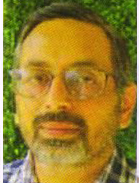 Amitabh Saraf
Amitabh Saraf
Technology Director (Advance Technology Development), Associate Technology Director (Integrated Flight Control Systems) and Group Director (Flight Control Laws LCA Navy), Aeronautical Development Agency
Dr Amitabh Saraf completed his B. Tech in 1990 in Mechanical Engineering and M Tech in 1992 in Systems and Control Engineering from IIT Bombay. He completed his PhD from IISc Bangalore in 2000 in Aerospace Engineering in flight mechanics and control of aircraft at high angles of attack. He completed his post-doctoral research from Cover feature Advanced Computing & Communications | December 2020 19 University of California, Irvine, USA in 2003. He has been working on design of flight control laws for Indian LCA since 1992. His areas of expertise include flight control law design, airdata systems design, systems identification and parameter estimation and guidance algorithm design for reentry vehicles. He has played an important role in design of special control law modes for LCA Navy which enabled the aircraft to land and take off from carrier in 2020. He is working in Aeronautical Development Agency and presently holds the post of Technology Director (Advance Technology Development), Associate Technology Director (Integrated Flight Control Systems) and Group Director (Flight Control Laws LCA Navy).
Article(s):
Ana María Cetto
InterAcademy Partnership
Article(s):
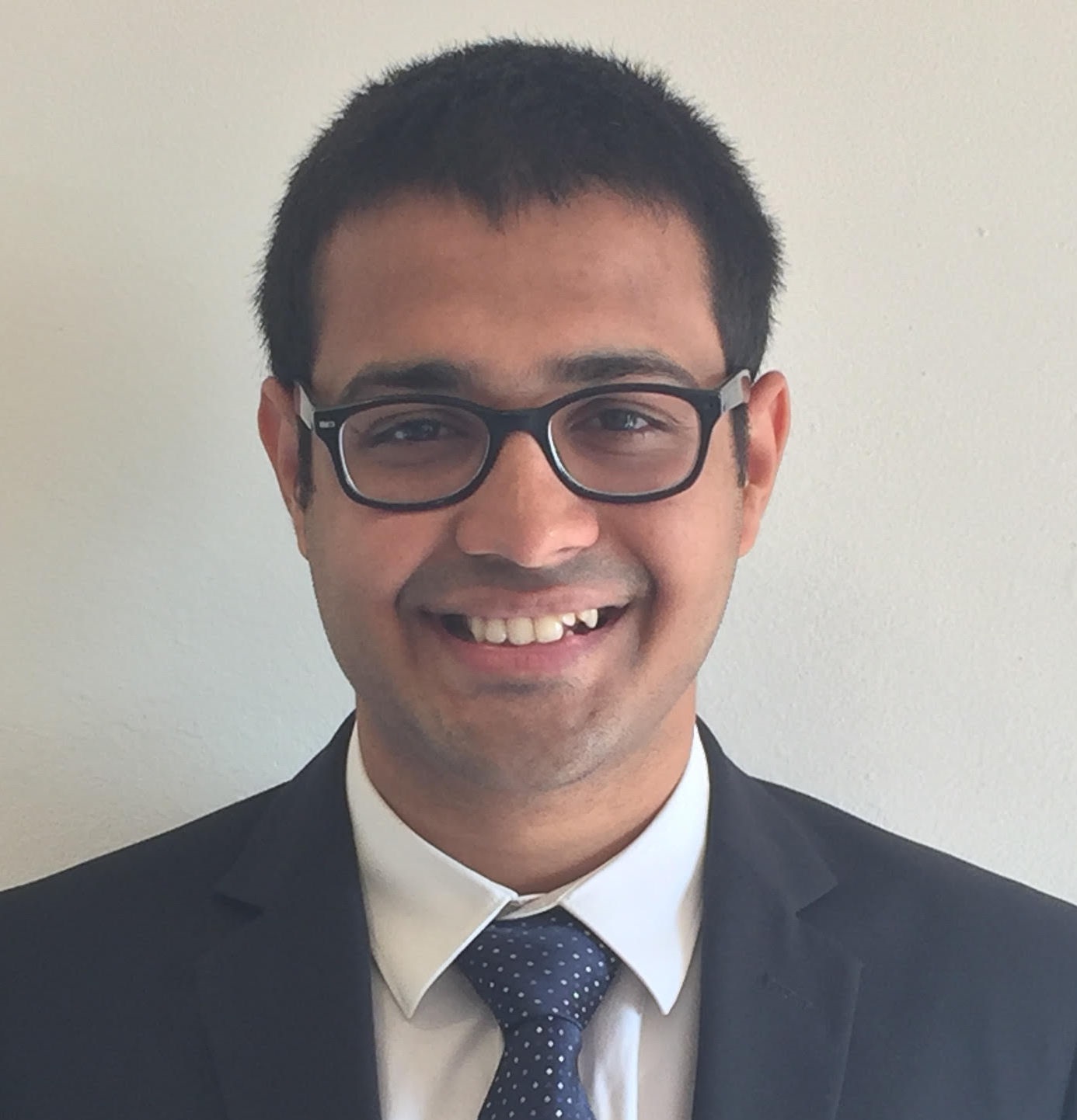 Anmol Sahoo
Anmol Sahoo
Indian Institute of Technology, Madras
Anmol Sahoo Originally a Mechanical Engineer from BITS Goa campus, Anmol is interested in developing software tools for the RISC-V ecosystem. He is currently working on implementing tools which aid in testing and analyzing RISC-V designs.
Article(s):
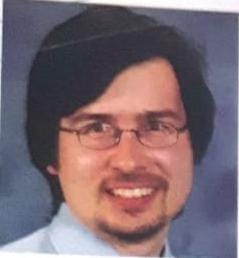 Anton V. Riabov
Anton V. Riabov
Chief Architect of Cloud and Data Platforms
Dr. Anton V. Riabov is currently a Chief Architect of Cloud and Data Platforms at the office of the CTO at Logitech International in Newark, CA. The work described in this publication was carried out while he was a researcher and a software engineer at IBM T.J. Watson Research Center between 2004 and 2017. He holds a Ph.D. degree in Operations Research from Columbia University. His research interests are in developing intelligent systems, including applications of AI planning and optimization algorithms, and his work has contributed to over 30 patents and over 40 peer-reviewed publications.
Article(s):
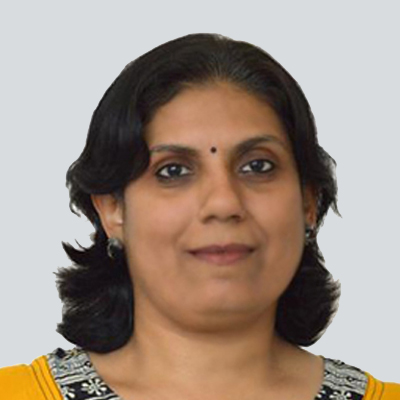 Aparna Lalingkar
Aparna Lalingkar
Gooru Labs, IIIT-B
Dr. Aparna Lalingkar, before Joining Gooru labs, was a post doctorate research fellow at University of Haifa, Israel under the fellowship of planning and budgeting Commission of Israeli higher Education.
She is a mathematician and educational technologist with PhD in Information Technology. For PhD she had proposed an ontology for teaching problem solving in mathematics. Her research interest include: application of Information Technology to Education specifically mathematics and science education, application of semantic web technology to education, ontological engineering and management, online assessment, automation of applications, educational technology and management.
She earned an Mphil in math education research from Cambridge University, UK and have received several academic fellowships and awards including HP Labs fellowship for PhD, DFID & CCT fellowship for MPhil.
She has wide range of teaching and work experience. She has taught tribal students as well as intellectually gifted students. She has also taught graduate level and master’s level students. During PhD at IITB, she has mentored MTech students for some projects.
Article(s):
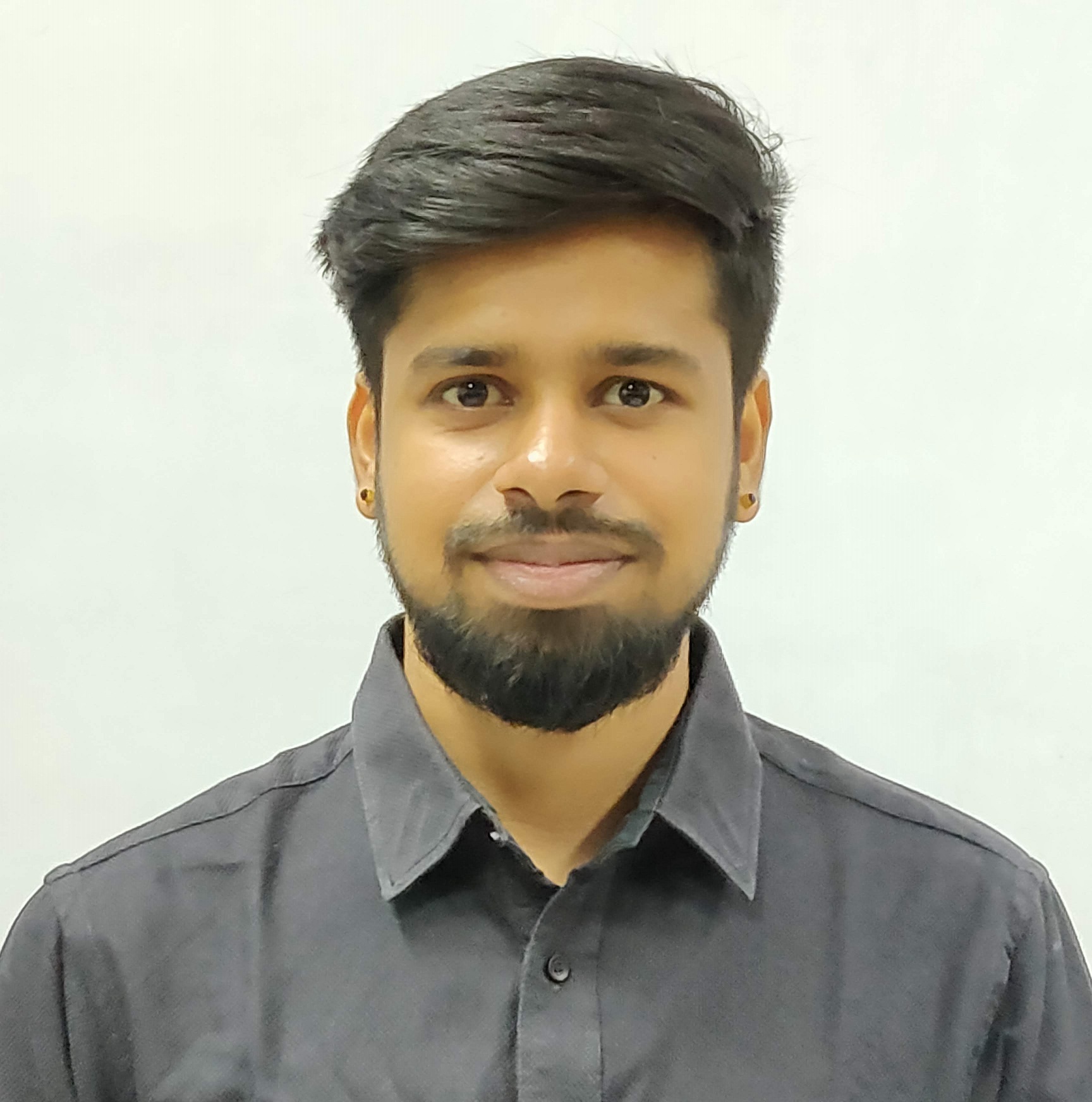 Arjun Menon
Arjun Menon
Indian Institute of Technology, Madras
Arjun Menon is an MS student at IIT Madras where he was one of the designers of the Shakti C-class SoC. Prior to Shakti, he was the primary architect of a processor for targeted for strategic sector consumption. He is currently doing research work on design of secure microprocessors.
Article(s):
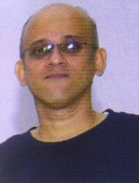 ARULALAN RAJAN
ARULALAN RAJAN
Electronic Design and Technology, Indian Institute of Science, Bangalore.
Dr. Arulalan Rajan, was pursuing his PhD degree at the time of carrying out this work at the centre for Electronics Design and Technology, Indian Institute of Science, Bangalore. He is currently an Academic Consultant and a Freelance Academician. He was an Assistant professor at the National Institute of Technology Karnataka, Surathkal during the period 2013-19. He is a faculty in the proficiency programme of the centre for continuing Education, IISc Bangalore. His research interests include Integer Sequences, patterns, Applied Mathematics involving Linear Algebra, Probability and Statistics, Number Theory etc.
Article(s):
Asfawossen Asrat Kassaye
InterAcademy Partnership
Article(s):
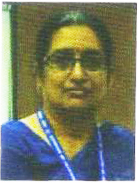 Asha Garg
Asha Garg
Aeronautical Development Establishment
Asha Garg is currently Project Director for Flight Control System for LCA at Aeronautical Development Establishment, Defence R&D organization. Asha has 30 years of experience with the ADE. She has been associated with LCA programme right from the conceptual stage. Major contribution is for the Software Development of Flight Control System for the Combat Aircraft. She has worked through the whole life cycle of the software from Requirement Analysis, Software Development, System testing to flight testing. She has been associated in the flight testing right from 1st flight. She has lead the team for delivery of software for Initial operational clearance Final operational clearance for LCD Asha is author of DRDO standards for software development and various papers in national and International Journals. She is Life Member of Computer Society of India (CSI), Aeronautical Society of India (AeSI), Society of Aerospace Quality and Reliability (SAQR), Indian Society of Systems for Science & Engineering (ISSE)
Article(s):
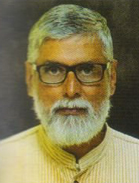 ASHOK RAO
ASHOK RAO
Electronics Design and Technology, IISc Bangalore
Dr.Ashok Rao, was formerly Head, Networking project at the centre for Electronics Design and Technology, IISc Bangalore. His research interest includes signal processing, Machine Learning and Applications, Archaeology etc. He has also served as visiting Faculty at the various Indian Institute of Management campuses across the country. Currently he is serving as the Director, National Institute of Engineering, Mysuru.
Article(s):
Balaji Venkat Venkataswami
Independent Consultant, Chennai, INDIA
Balaji Venkat Venkataswami obtained his Masters in Computer Applications from Thiagarajar College of Engineering, Madurai in 1991. Earlier, he received his undergraduate degree in Commerce in 1987, from Madras University through Loyola College, Chennai.
He has been working in the Information technology industry for 27 years. Of this he has spent 22 years in the Networking industry working for companies as in HCL Cisco Offshore Development center, Juniper Networks, Dell EMC Networking Research and Development center.
He has 47 patents to his credit all relating to Networking. His interest areas are Data Center networking, Service Provider Networks, Enterprise Networking, Security, MPLS, Multicast, Mobile IP, 4G and 5G Architectures, Content Networking, IGPs and BGP and a few others.
Article(s):
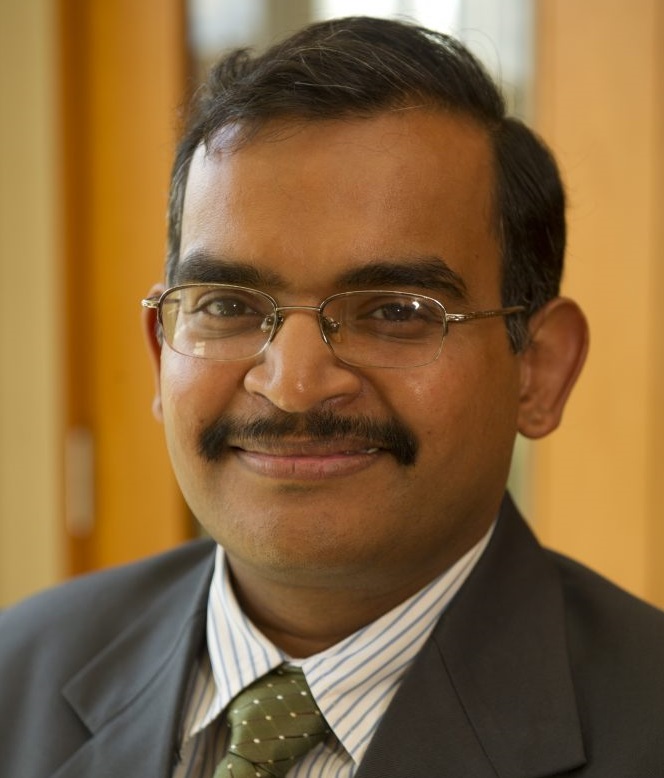 Biplav Srivastava
Biplav Srivastava
IBM Research
Biplav Srivastava is a Research Staff Member & Master Inventor at IBM Research and an ACM Distinguished Scientist and Distinguished Speaker. With over two decades of research experience in Artificial Intelligence, Services Computing and Sustainability, Biplav’s current focus is on promoting goal-oriented human-machine collaboration via natural interfaces using domain and user models, learning and planning.
Biplav’s work has lead to many science firsts and high-impact commercial innovations ($B+), 100+ papers and 40+ US patents issued. He co-organized the workshop track at IJCAI 2016, has co-organized over 30 workshops and given 5 tutorials at leading AI conferences. He has been running the “AI in India” Google group since 2010. More details are at: http://researcher.watson.ibm.com/researcher/view.php?person=us-biplavs
Article(s):
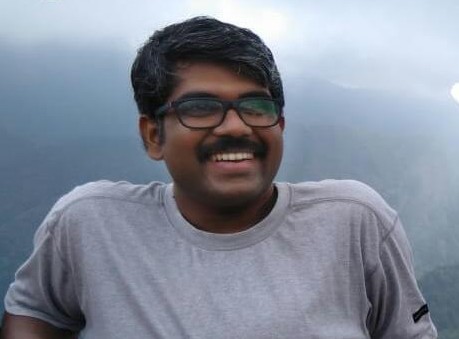 Birenjith Sasidharan
Birenjith Sasidharan
Assistant Professor at Government Engineering College, Barton Hill at Thiruvananthapuram, Kerala.
Dr. Birenjith Sasidharan received his B. Tech. in Electronics and Communication Engineering from College of Engineering, Trivandrum and M. Sc. (Engg.) from Indian Institute of Science, Bangalore in 2008. During 2008–2011, he was on the faculty of Electronics and Communication Engineering at Government Engineering College, Kannur in Kerala. In 2016, he completed his Ph. D. at the department of Electrical Communication Engineering in Indian Institute of Science, Bangalore. Since 2016, he has been working as Assistant Professor at Government Engineering College, Barton Hill at Thiruvananthapuram, Kerala. His research interests include code constructions for distributed storage.
Article(s):
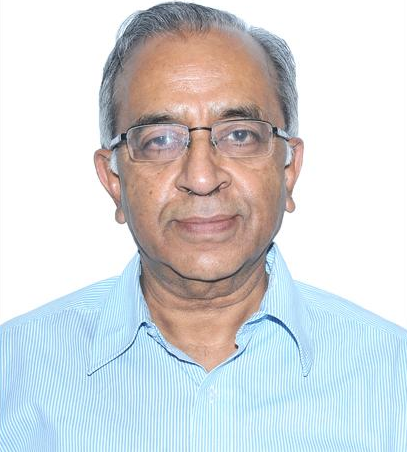 C. E. Veni Madhavan
C. E. Veni Madhavan
PhD (Control theory) from Indian Institute of Science
Prof. C. E. Veni Madhavan obtained his academic degrees, B.E.(Electrical Engineering) from College of Engineering, Madras, in 1969, M.E (Control Systems) from BITS Pilani, in 1971 and PhD (Control theory) from Indian Institute of Science in 1975. He worked in the industry, Air India (1976-1977), National Informatics Center (1977-1982), before joining the Computer Science and Automation department of IISc in 1983. He was a senior professor in the CSA department and retired formally in August 2014. He was the Chairman of CSA department during 1998-2000. He was invited to head the DRDO laboratory, SAG, New Delhi, during 2000-2003.
His current research areas of interest are computational linguistics and pragmatic cryptanalysis. He continues to work, in IISc, on three R&D projects in the areas of cryptography and natural language processing and on several technical advisory tasks spanning government policy and academic and research mentorship.
He has worked on many scientific, industrial consulting and development projects sponsored by government and corporate sectors in these areas. He has published over 80 papers in refereed journals and conferences, and delivered over 200 invited talks in national conferences and universities. He has guided 15 PhD, 11 MS and over 100 ME theses. Some of his project engagements were in the areas of cryptanalysis (MCIT), cryptography (TCoE-DOT) and cognitive networks (DST, DRDO). He is the co-author of a book on Public-key Cryptography published in India in 2009.
He obtained in 2001, an award by the Mathematical Association of India, for distinguished services in mathematics education and research. He obtained in March 2011, an award by IISc, for Excellence in Research in Engineering. He and co-authors obtained a Best Paper Prize in July 2011, in Boston USA, in the Annual Conference of the Cognitive Science Society.
He was an Associate Faculty of the Centre for Neuroscience of IISc. He was the Chief Executive of the Society for Innovation and Development (SID) of IISc, during 2006-2012. He is closely associated with activities of the professional bodies, the Cryptology Research Society of India (CRSI), the Ramanujan Mathematical Society (RMS), ACS, INAE. He also works very closely with the government policy and
R&D funding panels of DST, IFCPAR, MCIT, DRDO, NRB, NSCS, NTRO and with academic councils of universities and research centers, CRRAIMSCS, DSU, SASTRA, AMRITA, as member or Chairman of technical expert committees.
Article(s):
Dan Wang
Article(s):
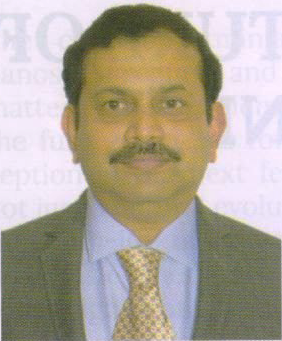 Debabrata Das
Debabrata Das
Professor at IIIT-Bengaluru (IIIT-B)
Dr. Debabrata Das is Professor at IIIT-Bengaluru (IIIT-B). Before joining IIT-B, he had served at G S Sanyal School of Telecommunication at IIT Kharagpur and later at Kirana Networks in New Jersey, USA, At present, he is Principal Investigator (PI) of projects from Department of Electronics and Information Technology, Government of India on Green Broadband Wireless Network and Nokia Research on IoT. He was PI of sponsored projects from Intel, Hewlett Packard, Microsoft, Motorola Research, Nokia, Govt. Of India on areas of IMS and Broadband Wireless MAC / QoS /Energy-saving, TVWS and Security. He has more than 125 peer reviewed papers in different journals and international conferences. He has 1 accepted US patent and 10 more are under review. Dr. Das received Ph.D. degree from IIT-Kharagpur and MTech form IIT-Varanasi. He is a Board Member of IIIT- Bhubaneshwar; Technical and Empower Committee member of e-Governance, Govt. of Karnataka. He is Fellow of Institution of Electronics & Telecommunication Engineers (IETE) and Fellow-IE. Dr. Das is recipient of Global IEEE MGA Achievement Award 2012 and Prof. K Sreenivasan memorial outstanding teaching award in the areas of Electronics and Telecommunication in 2017.
Article(s):
Debarati Sen
Indian Institute of Technology Kharagpur
Article(s):
Diane Negra
InterAcademy Partnership
Article(s):
Dr N. Rama Murthy
Article(s):
Dr. Arogyaswami Paulraj
A noted expert in Information Theory
Article(s):
Dr. Dinesh K. Anvekar
Article(s):
Dr. N. Rama Murthy
Addl. Director (Retd.), CAIR (DRDO)
Article(s):
-
EDITORIAL
Editorial | Volume 4, Issue 03 | 25 September, 2020
-
From Editor's Desk
Editorial | Volume 3, Issue 01 | 25 March, 2019
-
From Editor's Desk
Editorial | Volume 2, Issue 04 | 25 December, 2018
-
From Editor's Desk
Editorial | Volume 2, Issue 03 | 25 September, 2018
-
From Editor's Desk
Editorial | Volume 2, Issue 02 | 25 June, 2018
-
From the Editor's Desk
Editorial | Volume 1, Issue 02 | 25 September, 2017
Dr. N. Rama Murthy
Article(s):
Dr. N. Rama Murthy
Article(s):
Dr. N. Rama Murthy
Article(s):
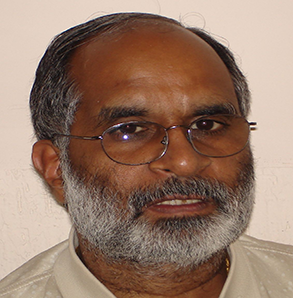 Dr. Ram P. Rustagi
Dr. Ram P. Rustagi
Professor, CSE dept, KSIT Bangalore
Prof. Ram P. Rustagi is currently working as Professor, CSE dept, KSIT Bangalore, and honed up his academic skills with Ph.D from IIT Delhi, and M.Tech from IISc Bangalore. Prior to KSIT, at Cavisson Systems, he mentored new technology development using Machine Learning techniques in Security and Performance Monitoring. At PES University, he had taught Undergraduates, Post Graduates students, and successfully guided 3 Ph.D scholars. At PESU, he brought innovations in teaching computer network and security courses, and introduced practical experiential learning exercises.
His previous engagements cover senior positions in engineering in various startup technology companies in USA/India. The professional spectrum of 30+ years covers Academic Institutes, and Technology start-ups as well as large companies. His research interests are Computer Networks and Cyber Security, Application Performance optimisation, Analytics cum Data Mining, and Algorithms.
He has conducted several Hands-on workshops and seminars, delivered guest lectures, conducted tutorials at IEEE conferences as well as corporates, and is an invited speaker at various technology workshops. He has several publications in international Journals and IEEE conferences and is a regular peer reviewer at IEEE ANTS and IEEE ADCOM. He is an invited contributor and writes regularly for the technical journal Advanced Computing and Communications (http://acc.digital) published quarterly by ACCS, under the column Experiential Learning of Networking Technologies.
Article(s):
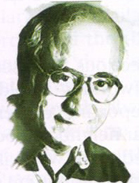 Dr. Srinivasan Ramani
Dr. Srinivasan Ramani
Research Director, HP Labs India, located in Bangalore.
Dr Srinivasan Ramani was Research Director, HP Labs India, located in Bangalore. He founded
the National Centre for Software Technology (NCST) in 1985, and had directed it during 1985-
2000. His work at NCST covered R & D in the areas of computer networks and knowledge
based computer systems. He made significant contributions to the creation and development of
the Indian academic network, ERNET, which brought Internet connectivity to India in 1988,
and the Bombay Library Network, Bonet. He had served as Editor, Journal of Information
Technology for Development, for a number of years.
He is President, International Council for Computer Communication, and Chairman of the
Governing Board of the Information Library Network (INFLIBNET). He was also a member of
the High Level Panel of Advisors to the UN on Information and Communication Technologies.
Article(s):
Dr. Srinivasan Ramani
Article(s):
Dr. Srinivasan Ramani
Article(s):
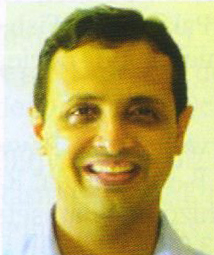 Dr. Vineeth N Balasubramanian
Dr. Vineeth N Balasubramanian
Associate Professor, IIT-H
Dr Vineeth R Balasubramanian is an Associate Professor in the Department of Computer Science and Engineering at the Indian Institute of Technology, Hyderabad (IIT-H). His research interests include deep learning, machine learning, and computer vision. His research has been published at premier peer-reviewed venues including ICML, CVPR, ICCV, KDD, ICDM IEEE TPAMI and ACM MM. His PhD dissertation at Arizona State University on the Conformal Predictions framework was nominated for the Outstanding PhD Dissertation at the Department of Computer Science. He is an active reviewer/contributor
at many conferences such as NeurIPS, CVPR, ICCV, AAAI, IJCAI, ACM MM with a recent award as an Outstanding Review er at CVPR 2019, as well as journals including IEEE TPAMI, IEEE TNNLS, JMLR and Machine Learning. He currently serves as the Secretary of the AAA1 India Chapter. For more details. please see https://iith.ac.in/-vineethnb/.
Article(s):
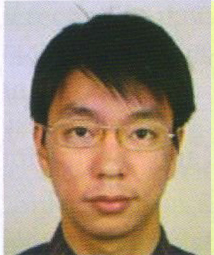 Dr. Wei Guo
Dr. Wei Guo
Assistant Professor, University of Tokyo
Dr. Wei Guo is currently an Assistant Professor with International Field Phenomics Research Laboratory, Institute of Sustainable Agro-Ecosystems, Graduate School of Agricultural and Life Sciences, the University of Tokyo, Japan. He received his Ph.D in Agri-Informatics from the University of Tokyo, in 2014. His research focus on field-based high-Throughput phenotyping using advanced imaging techniques (drone remote sensing and ground-based observation), image analysis and machine learning approaches. He also serves as the Associate Editor of a science partner journal, Plant Phenomics; and Executive Board Member, Editorial Committee of Japanese Society of Agricultural Informatics.
Article(s):
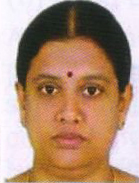 G. Usha
G. Usha
Scientist in Aeronautical Development Agency (ADA) Ministry of Defence, Govt. of India, Bangalore, 1ndia
G Usha received the B.E degree in Electronics Communication Engineering 1996 from Vellore Engineering College Madras University, India. She received M S degree in Electronics (By research) in 2013 from Defence Institute of Advanced Technology (DIAT), Pune, Deemed University India. Her research area includes design and development of real time estimate and computational model of fuel gauging system of fighter aircraft using micro controller, she is currently working Scientist in Aeronautical Development Agency (ADA} Ministry of Defence, Govt. of India, Bangalore, 1ndia. She has successfully completed Design, Development & Certification of Environmental Control & Fuel Monitor Electronic Unit (ECFM-EU) software for LCA Tejas MKI aircraft variants Airforce/ Navy and Fighter /Trainer aircrafts. ECFM-EU performs Real time monitor and control of the environment system of LCA Tejas MKI aircrafts. It also performs Fuel system monitoring and Oxygen system monitoring. She is presently involved in design and development of ECFM-EU soft- ware for LCA Tejas MK2 and AMCA Aircrafts.
Article(s):
G. S. Madhusudan
InCore Semiconductors Pvt. Ltd
Article(s):
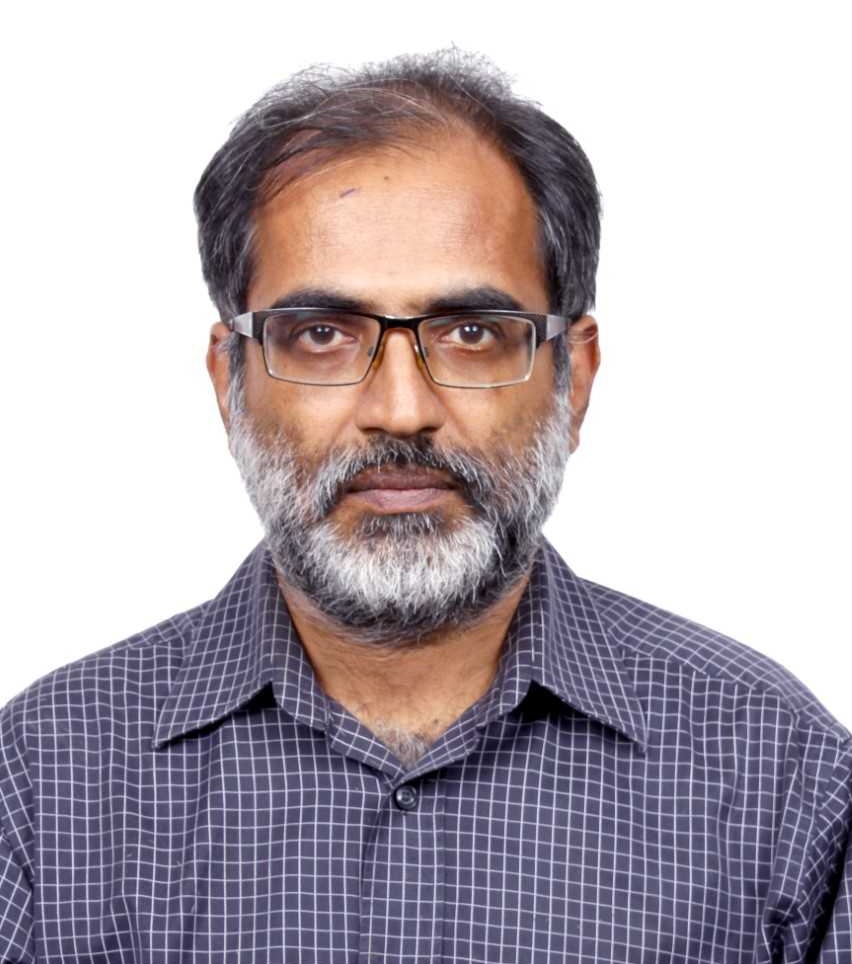 G. S. Madhusudhana
G. S. Madhusudhana
CEO and co-founder or InCore Semiconductors
G. S. Madhusudan is the CEO and co-founder or InCore Semiconductors, India’s first processor IP company. He is also one of the coordinators of the IIT Madras Shakti project.
He is a veteran of the electronics and computing technology industry with more than 3 decades of experience in running tech startups and R&D organizations across the world. He is an advisor to various govt departments and was a member of the GOI AI task force.
Article(s):
Giuseppe Doronzo
Article(s):
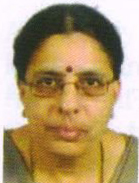 H. R. Uma
H. R. Uma
Utility System Electronic units for Tejas Mk2 and AMCA Aircrafts.
H R Uma has received her B.E degree in Instrumentation Technology from Sri Jayachamarajendra College of Engineering Mysore during the year 1984. She has worked for a period of 15 years in the field of Process Control Instrumentation with Foxboro and Yokogawa systems ranging from Analog to Processor based systems, for continuous control and Batch control and for various Process control applications like Boilers, Refineries, Chemicals etc. Presently she is serving in ‘Aeronautical Development Agency’, Bangalore as ‘Group Director (Utility Systems & Management Systems)’. She has successfully completed the design, development, hardware/software certification and evaluation of Utility System Electronic units for LCA Tejas Mkl, Airforce/Navy, Fighter/trainer Aircrafts. Utility system electronic units provide control of Brake system, Nose wheel steering system and Environmental system. These units also monitor the Engine system, Electrical system, Undercarriage system, Hydraulics system and the Fuel system. She is present responsible for the realization of Utility System Electronic units for Tejas Mk2 and AMCA Aircrafts.
Article(s):
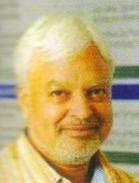 H. S. JAMADAGNI
H. S. JAMADAGNI
(DESE) at IISc
Prof. H S Jamadagni, is a professor, Department of Electronic Systems Engg., (DESE) at IISc. He also served as a Chairman of the Department. His interests include communication Networks, Embedded systems, wildlife studies, Natural Farming philosophy. He has also served as part time member in Telecommunications Regulatory Authority of India (TRAI) during 201-2013.
Article(s):
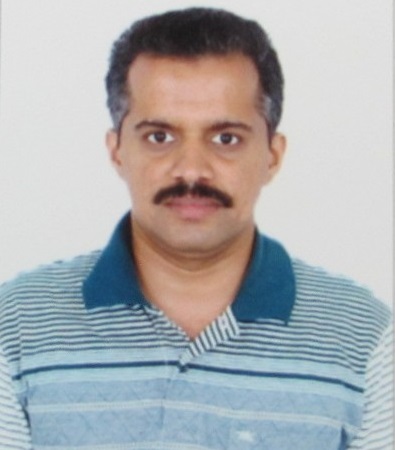 H. V. Kumar Swamy
H. V. Kumar Swamy
Research scholar in Dept. of Computer Science and Automation, Indian Institute of Science. He obtained his M.Sc. degree in mathematics from Kuvempu University, and M. Tech in computer science from Indian Statistical Institute, Kolkata.
Mr. H. V. Kumar Swamy is a research scholar in Dept. of Computer Science and Automation, Indian Institute of Science. He obtained his M.Sc. degree in mathematics from Kuvempu University, and M. Tech in computer science from Indian Statistical Institute, Kolkata. His research interest are number theory and cryptography. He has worked on several academic and industry projects in the areas of security and cryptonalysis.
Article(s):
Hemant Shukla
Article(s):
heu dd
ddd
Article(s):
Jailendra Kumar
Article(s):
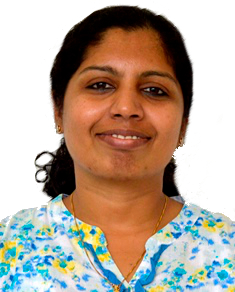 Jaya Sreevalsan Nair
Jaya Sreevalsan Nair
Associate Professor, International Institute of Information Technology Bangalore (IIIT-B)
Dr. Sreevalsan Nair received her B.Tech. degree from IIT Madras, Master of Science from Mississippi State University, and Ph.D. from University of California, Davis. Her research is in the area of visual analytics and scientific computing. She uses multi disciplinary approaches from computer vision, image processing, computational topology, linear algebra, and GPU computing for analysing large scale data using appropriate data models and corresponding visual representations.
Article(s):
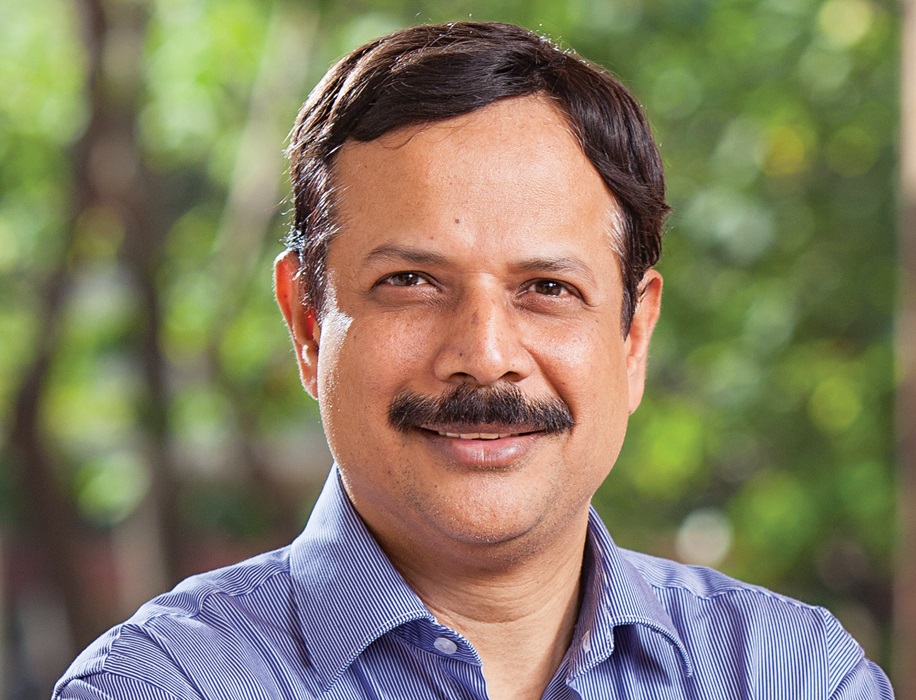 Jayant Ramaswamy Haritsa
Jayant Ramaswamy Haritsa
Professor, CSA, Indian Institute of Science
Dr. Jayant Ramaswamy Haritsa is a senior professor at the Supercomputer Education and Research Centre and Chair of the Department of Computer Science and Automation at the Indian Institute of Science (IISc), Bengaluru, India. Haritsa’s work lies at the intersection of database systems and data mining, with a focus on query processing across a range of database systems.
A distinguished alumnus of IIT-Madras, Haritsa received his M.S. and Ph.D. in Computer Science from the University of Wisconsin, Madison, USA. He founded the Database Systems Lab at IISc in 1995 that has graduated over 80 post-graduate students.
His work has been recognized with a Best Paper Award at the International Conference on Very Large Data Bases (VLDB) in 1998, and Best Software Demonstration Awards at the VLDB conferences in 2010 and 2014. He received the Shanti Swarup Bhatnagar Award and Distinguished Scientist of ACM award in 2009, and the ACCS CDAC Foundation Award in 2013. He is a Fellow of IEEE, Indian Academy of Sciences, Indian National Academy of Engineering, and National Academy of Sciences, India.
Article(s):
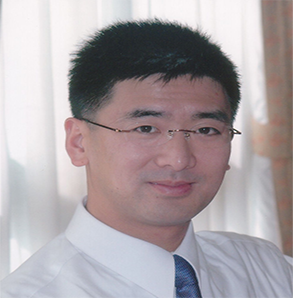 Joseph YIU
Joseph YIU
Senior embedded technology manager at ARM, specializing in the ARM Cortex-M
oseph Yiu is a senior embedded technology manager at ARM, specializing in the ARM Cortex-M
processor technology, microcontroller system-level design and software development for the Cortex-M microcontrollers. Joseph has been instrumental on a number of processor design projects, including the ARM Cortex-M3 and Cortex-M0 processors, as well as a wide range of products, including the Cortex-M System Design Kit, AMBA Design Kits, PrimeCells and CoreSight components. As an author, inventor and international speaker on Cortex-M designs, Joseph has 16+ years of experience with ARM IP development.
He has authored The definitive guide to ARM Cortex-M Processors book series, which has been translated into multiple languages, and holds multiple patents related to processor system designs.
Article(s):
Kirtan Gopal Panda
Indian Institute of Technology Kharagpur
Article(s):
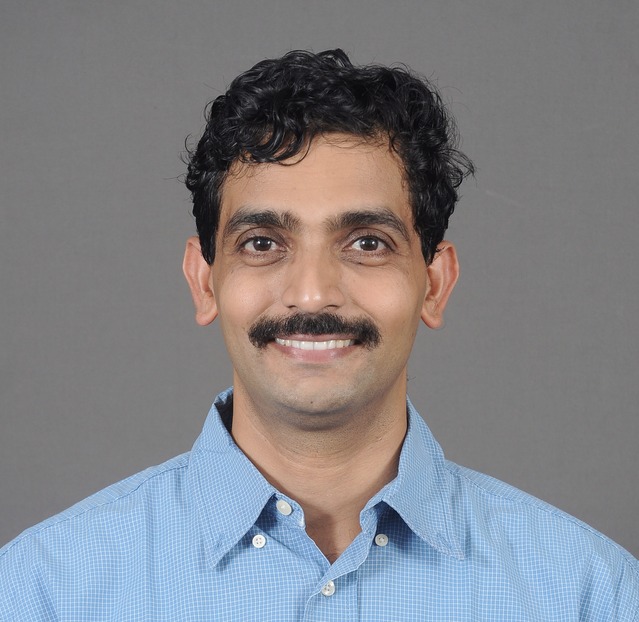 Krishna M. Sivalingam
Krishna M. Sivalingam
Department of CSE, IIT Madras, Chennai, INDIA.
Dr. Krishna M. Sivalingam is Professor and Head in the Department of CSE, IIT Madras, Chennai, INDIA. Previously, he was a Professor in the Dept. of CSEE at University of Maryland, Baltimore County, Maryland, USA from 2002 until 2007; with the School of EECS at Washington State University, Pullman, USA from 1997 until 2002; and with the University of North Carolina Greensboro, USA from 1994 until 1997. He has also conducted research at Lucent Technologies’ Bell Labs in Murray Hill, NJ, and at AT&T Labs in Whippany, NJ.
He received his Ph.D. and M.S. degrees in Computer Science from State University of New York at Buffalo in 1994 and 1990 respectively; and his B.E. degree in Computer Science and Engineering in 1988 from Anna University’s College of Engineering Guindy, Chennai (Madras), India. While at SUNY Buffalo, he was a Presidential Fellow from 1988 to 1991.
His research interests include wireless networks, wireless sensor networks, optical wavelength division multiplexed networks, and performance evaluation. His work has been supported by several sources including AFOSR, DST India, IBM, NSF, Cisco, Intel, Tata Power Company and Laboratory for Telecommunication Sciences. He holds three patents in wireless networks and has published several research articles including more than fifty journal publications. He has co-edited a book on Next Generation Internet Technologies in 2010; on Wireless Sensor Networks in 2004; on optical WDM networks in 2000 and 2004. He is serving or has served as a member of the Editorial Board for journals including ACM Wireless Networks Journal, IEEE Transactions on Mobile Computing, and Elsevier Optical Switching and Networking Journal. He is presently serving as Editor-in-Chief of Springer Photonic Network Communications Journal and EAI Endorsed Transactions on Future Internet.
He is a Fellow of IEEE, a Fellow of INAE and an ACM Distinguished Scientist.
Article(s):
L. Umanand
Dept. of Electronic Systems Engineering, IISc
Article(s):
Lai-Meng Looi
InterAcademy Partnership
Article(s):
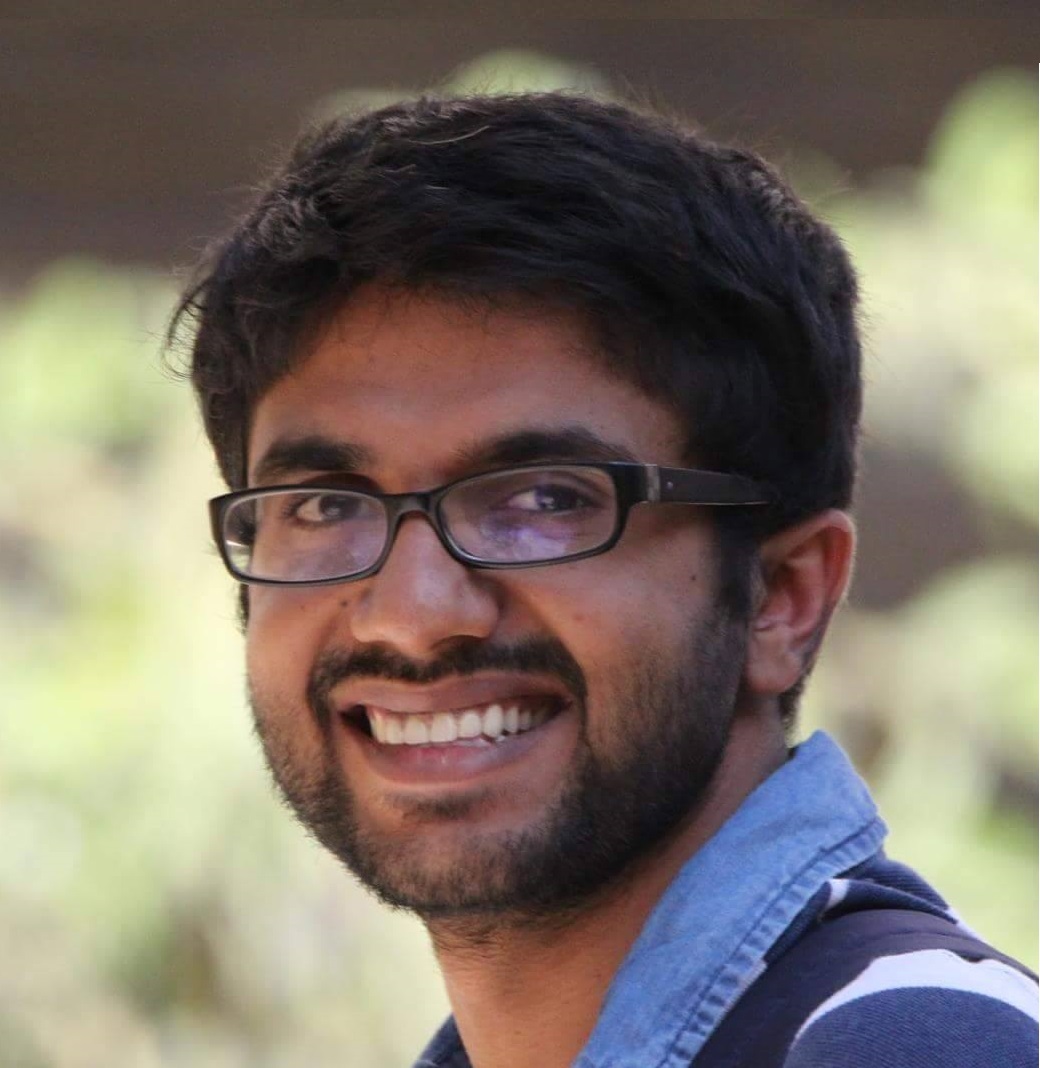 M. Nikhil Krishnan
M. Nikhil Krishnan
Visvesvaraya Ph.D. scholar at the Department of Electrical Communication Engineering, IISc
M. Nikhil Krishnan received his B. Tech. in Electronics and Communication Engineering from Amrita School of Engineering, Kollam, in 2011 and M. E. in Telecommunication from the Indian Institute of Science (IISc), Bangalore, in 2013. He is currently a Visvesvaraya Ph.D. scholar at the Department of Electrical Communication Engineering, IISc. His research interests include coding theory and information theory.
Article(s):
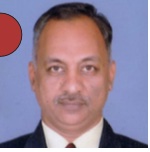 Mahesh Nayaka Mysoreannaiah
Mahesh Nayaka Mysoreannaiah
Reliance Jio
working as Assistant Vice President – Standards at Reliance Jio Infocomm Limited at Bengaluru. I am responsible for Research and Standards within
our Organization. I am a Chair for SGSS study group at TSDSI, our national standards body. I am having 25+ years of work experience in Telecom wireless domain and currently active member of global (3GPP, ITU, O-RAN, IEEE) and regional standard body (TSDSI) with focus on 5G+/ 6G technologies.
Article(s):
Marcos Regis da Silva
InterAcademy Partnership
Article(s):
Marino Difino
Article(s):
Mario Amoruso
Article(s):
Murat Torlak
Article(s):
Murtaza Ali
Article(s):
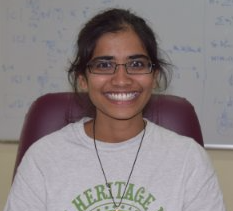 Myna Vajha
Myna Vajha
Ph.D student at the department of Electrical Communication Engineering in Indian Institute of Science, Bangalore
Myna Vajha received her B. Tech in Electronics and Electrical Communications Engineering from IIT Kharagpur in 2011, and Masters from EE Department, University of Southern California (USC), in 2013. She is currently a Ph.D. student at the department of Electrical Communication Engineering in Indian Institute of Science, Bangalore. She has worked with Ericsson and Qualcomm in the past as a software architect, engineer respectively. Her research interests include coding theory and information theory, with applications to distributed storage systems.
Article(s):
N Ramamurthy
Article(s):
Navakanta Bhat
Professor and Chair, Centre for Nano Science and Engineering, Indian Institute of Science, Bangalore
Article(s):
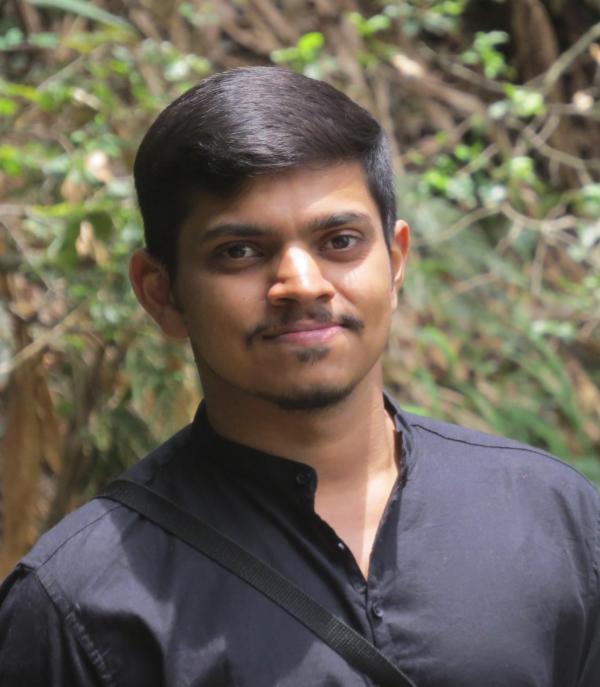 Neel Gala
Neel Gala
InCore Semiconductors Pvt. Ltd
Neel Gala received his Bachelors degree (B-Tech) from the National Institute of Technology Warangal (NITW) in Electronics and Communication Engineering in year 2010. In the last quarter of 2010, he joined IIT-Madras as a project associate for a period of 18 months. During this period he was working on the design and development of some of the indigenous processors and micro-controllers which was partially funded by multiple Indian Defense agencies. By January 2012, he joined the Computer Science and Engineering Department at IIT-Madras (IITM) as a Direct PhD Candidate with Prof. V. Kamakoti as his advisor.
Neel was also the recipient of the TCS-PHD fellowship for 2 consecutive years and received my PhD Degree in the last quarter of 2016 having published more than 16 international articles and papers. Since then Neel has been leading the technical team of the SHAKTI Processor Program and has recently co-founded InCore Semiconductors Pvt. Ltd. as well.
Neel was also the recipient of the TCS-PHD fellowship for 2 consecutive years and received my PhD Degree in the last quarter of 2016 having published more than 16 international articles and papers. Since then Neel has been leading the technical team of the SHAKTI Processor Program and has recently co-founded InCore Semiconductors Pvt. Ltd. as well.
Neel was also the recipient of the TCS-PHD fellowship for 2 consecutive years and received my PhD Degree in the last quarter of 2016 having published more than 16 international articles and papers. Since then Neel has been leading the technical team of the SHAKTI Processor Program and has recently co-founded InCore Semiconductors Pvt. Ltd. as well.
Article(s):
nigg rao
nihh
Article(s):
Nilabja Banerjee
Knobly Consulting
Article(s):
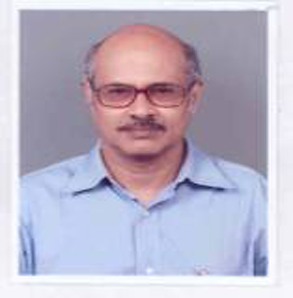 P. V. Ananda Mohan
P. V. Ananda Mohan
Technology Advisor, Centre for Advanced Computing (CDAC), Bangalore
Dr. P. V. Ananda Mohan is Technology Advisor, Centre for Advanced Computing (CDAC), Bangalore. He has received Ph.D degree in electrical communication engineering from Indian Institute of Science, Bangalore, in 1975. From 1973 till December 2003, he was with I.T.I. Limited R&D Division. Later, till 2014, he was with Electronics Corporation of India Limited, Bangalore. His research interests are in the area of Analog VLSI design, VLSI architectures and Cryptography. He has published in these areas in refereed international journals and conferences. He has published five books Switched Capacitor Filters:Theory, Analysis and Design (co-authored with Dr. M. N. S.Swamy and Dr. V. Ramachandran).
Article(s):
P. V. Ananda Mohan
Life Fellow IEEE
Article(s):
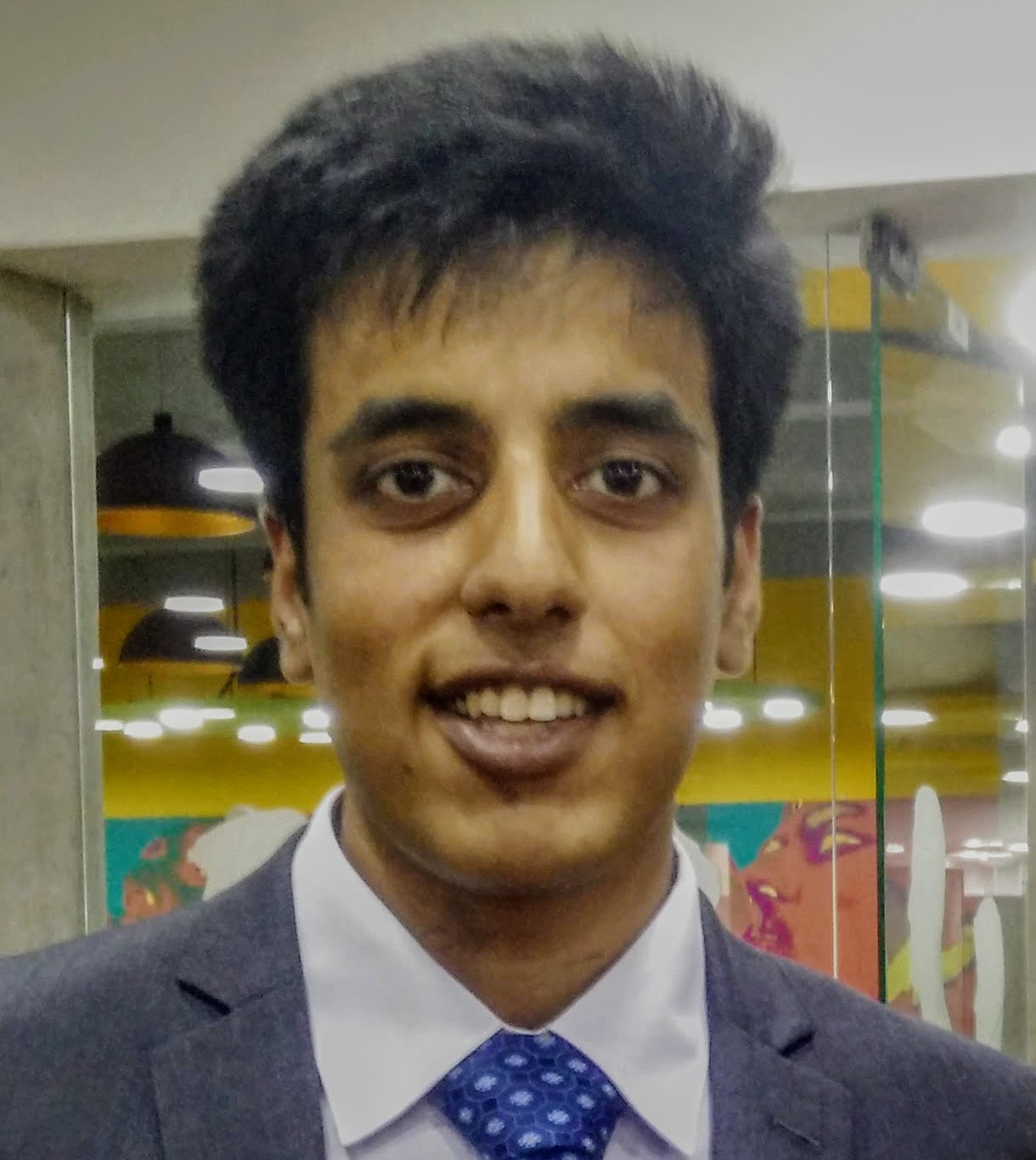 Paul George
Paul George
Indian Institute of Technology, Madras
aul George Paul george is a graduate Electrical Engineer and works on design and design verification of the Shakti cores. He wrote the SLSV framework for real time lock-step verification of cores.
Article(s):
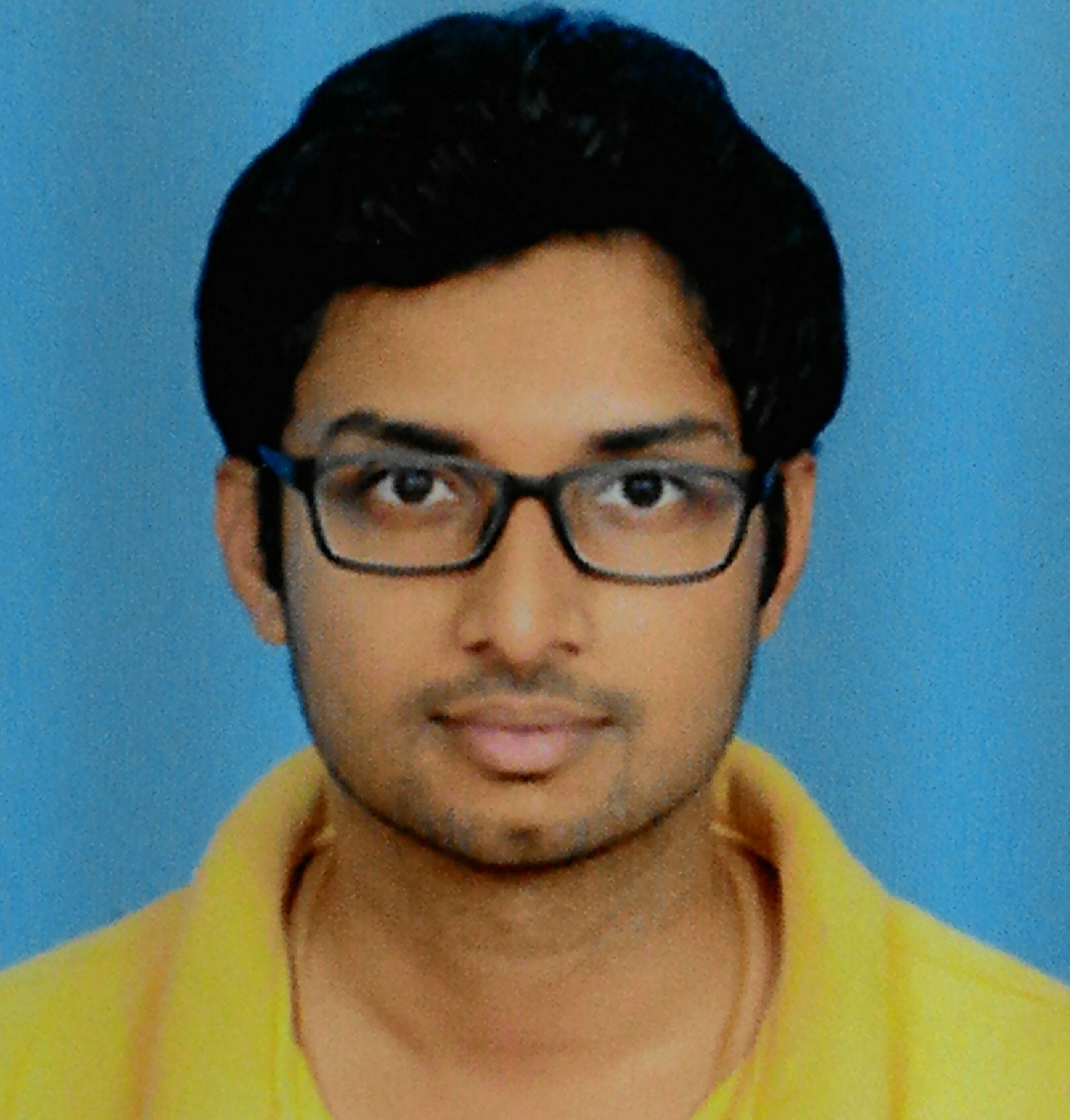 Phanidra Palagummi
Phanidra Palagummi
Dept. of CSE, Indian Institute of Technology Madras, Chennai, INDIA
Phanindra Palagummi is pursuing the M.S. (by Research) program in Computer Science and Engineering at IIT Madras. Earlier, he worked for 4 years as a Senior Technical Member in Automated Data Processing (ADP). His interest areas include Network Function Virtualizaton (NFV), Software Defined Networking (SDN), 4G and 5G mobile network architectures, and use of FPGAs as programmable data plane switches for 5G mobile networks.
Article(s):
Praphul Chandra
Department of Computer Science and Automation, Koinearth
Article(s):
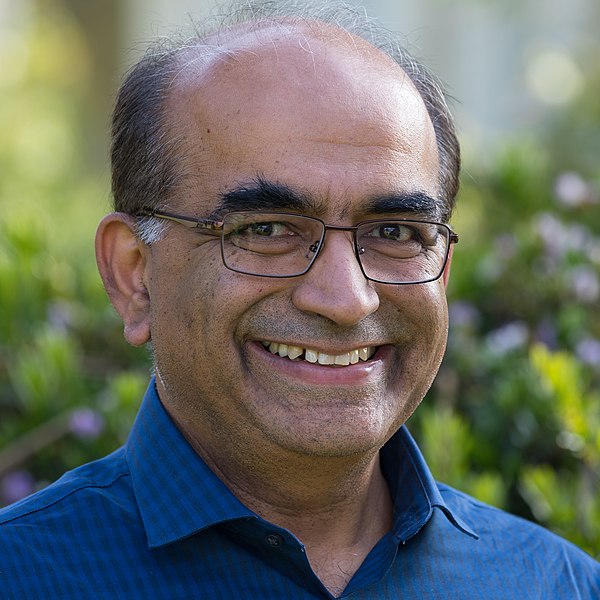 Prasad Ram
Prasad Ram
Gooru Inc.
Prasad Ram (aka Pram) is the Founder, CEO and Chairman of Gooru. While working at Google, Pram devised a prototype to address his problem of finding age and topic appropriate educational resources on the web. Gooru, as it is today, began as a “20% effort” evolved into a yea- long pilot in India that included 1,000 students across 25 classrooms. Pram left Google to pursue Gooru as not-for- profit education technology start-up. Pram has previously worked at xerox Research, Dynamax Technology (co-founder), Yahoo! and Google. Pram has Ph.D. and M.S. in Computer science from UCLA, and he is obtained his B.Tech. in computer Science from IIT-Bombay. You can reach pram at pram@gooru.org.
Article(s):
Prashanth Hebbar
Managing Partner, Knobly Consulting
Article(s):
-
GPT-3: An Important Step Towards General Intelligence
Feature | Volume 5, Issue 04 | 25 December, 2021
-
Building India's Processor Ecosystem -- An Interview with Prof. Kamakoti, IITM
Interview | Volume 3, Issue 01 | 25 March, 2019
-
A Stitch in Code Saves Nine - An Interview with Dr. Vijay Kumar, IISc
Feature | Volume 2, Issue 04 | 25 December, 2018
-
An Interview with Prof. Shalabh Bhatnagar, Winner of ACCS-CDAC Foundation Award 2017
Interview | Volume 1, Issue 03 | 25 December, 2017
-
IEEE 754 Floating Point Arithmetic Meets Its Challenger
Feature | Volume 1, Issue 03 | 25 December, 2017
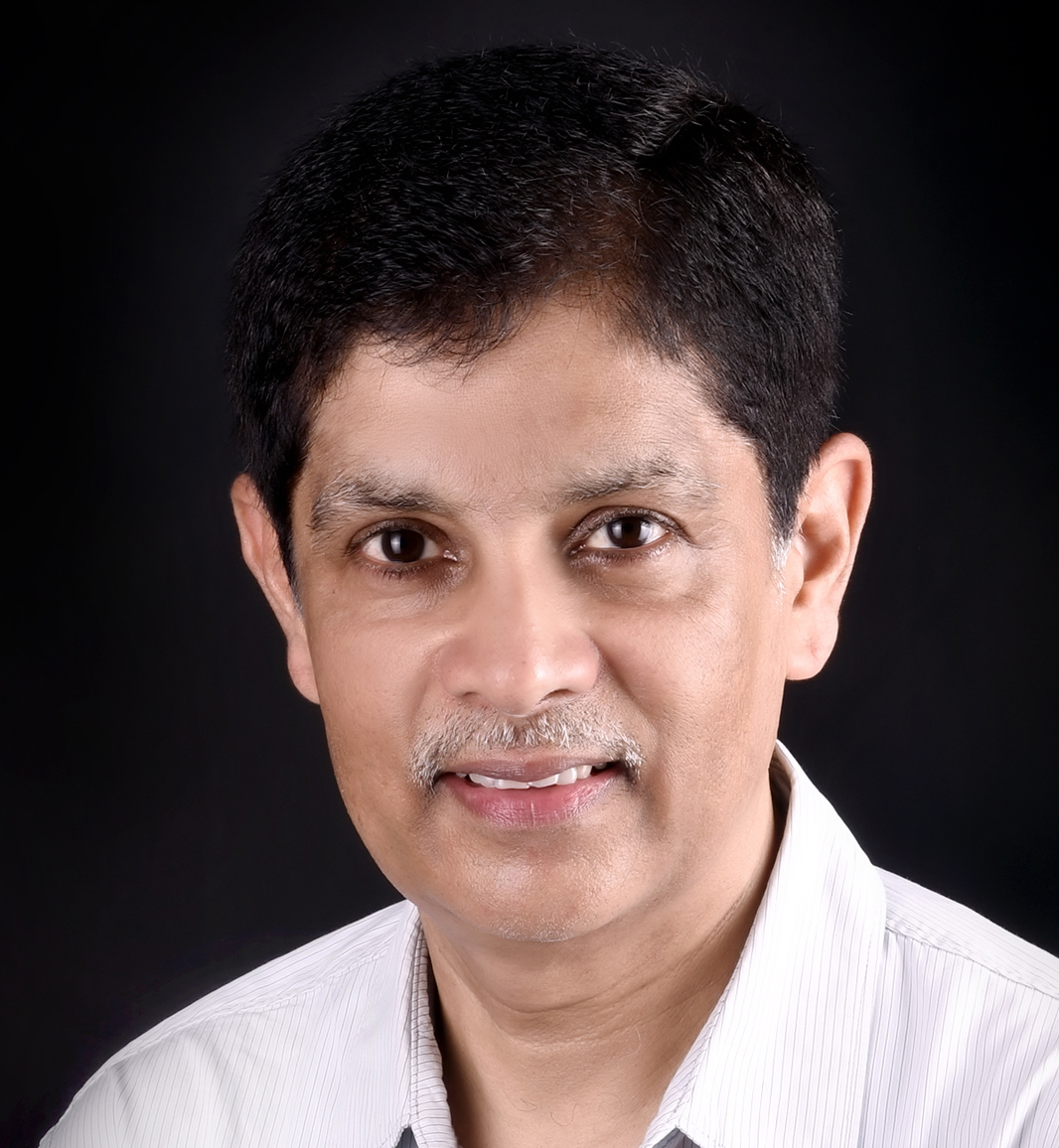 Prof P. Vijay Kumar
Prof P. Vijay Kumar
Faculty of IISc Bengaluru
Prof. P. Vijay Kumar received his B.Tech. and M.Tech. degrees from IIT Kharagpur and IIT Kanpur respectively, and Ph.D. degree from USC in 1983, all in Electrical Engineering. From 1983 to 2003 he was on the faculty of the EE Systems Department at USC. Since 2003, he has been on the faculty of IISc Bengaluru. He currently holds the position of Visiting Professor at USC. His research interests include codes for distributed storage and wireless communication. He is a recipient of the 1995 IEEE Information Theory Society Prize-Paper award and the IEEE Data Storage Best Paper Award of 2011/2012. A pseudorandom sequence family designed in a 1996 paper co-authored by him now forms the short scrambling code of the 3G WCDMA cellular standard.He received the USC School of Engineering’s Senior Research Award in 1994, the Award for Excellence in Research in Engineering in 2013 at IISc and the 2017-22 J. C. Bose National Fellowship awarded by the Department of Science and Technology. He was on the Board of Governors of the IEEE Information Theory Society in 2013-15, and 2019-21, was a plenary speaker at ISIT 2014 and a TPC Co-Chair of ISIT 2015. He is a Fellow of the INAE, IAS and INSA Indian academies.
Article(s):
Prof. Ravindran
associate professor in Computer Science at IIT Madras.
Article(s):
Prof. S. Sadagopan
Director, IIIT-B
Article(s):
Prof. Subhasis Chaudhuri
Director, IIT Bombay.
Article(s):
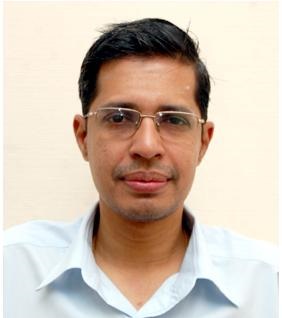 Prof. V. Kamakoti
Prof. V. Kamakoti
Department of Computer Science and Engineering, Indian Institute of Technology, Madras.
Prof. V. Kamakoti currently holds the post of professor in the Department of Computer Science and Engineering, Indian Institute of Technology, Madras. He has more than 15 years of experience in computer systems development and specializes in the area Computer Architecture, CAD for VLSI and High Performance Computing. Professor Kamakoti holds a Master of Science degree and a doctorate of philosophy in computer science and engineering from the Indian Institute of Technology, Madras. He has authored a number of research papers that have been published in various international journals and in the proceedings of many scientific conferences.
Article(s):
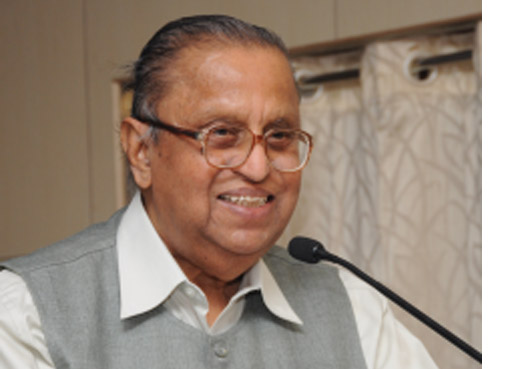 Prof. Vaidyeswaran Rajaraman
Prof. Vaidyeswaran Rajaraman
Vaidyeswaran Rajaraman
Prof. Vaidyeswaran Rajaraman is known for his pioneering efforts in the field of Computer Science education in India.
He established the first academic programme in computer science in India at the Indian Institute of Technology, Kanpur in 1965. He joined IISc in 1982 wherein he setup the Supercomputing facility. He was an IBM Research Professor of Information Technology at the Jawaharlal Nehru Centre for Advanced Scientific Research, Bangalore from 1994 to 2001. Currently he is Honorary Professor at the Supercomputer Education & Research Centre at IISc.
An elected fellow of all the Indian science academies, Prof. Rajaraman is a recipient of Shanti Swarup Bhatnagar Prize – the highest Indian award in Science and Technology category for young scientists and several other honors including the Om Prakash Bhasin Award and the Homi Bhabha Prize. He has guided 30 Ph.D students in Computer Science, published over 75 technical papers in reputed journals and is the author of 23 books in Computer Science.
Government of India awarded him the Padma Bhushan, in 1998, for his contributions to science.
Article(s):
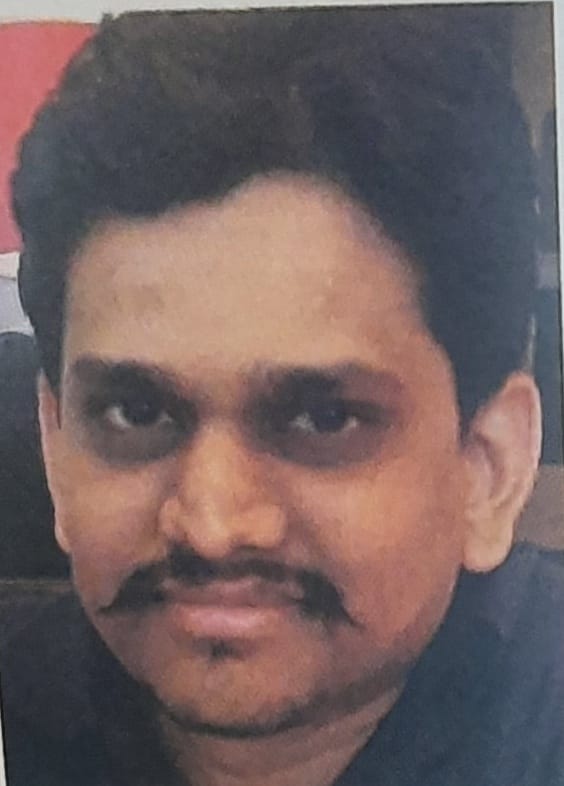 Prof.Sanjeev Gurugopinath
Prof.Sanjeev Gurugopinath
Professor with the Department of Electronics and Communication Engineering, PES University, Bengaluru
Dr. Sanjeev Gurugopinath received B.E. degree in Electrical and Electronics Engineering from Dr. Ambedkar institute of Technology, Visvesvaraya Technological University, Bengaluru, in 2004, the M.Tech. Degree in Digital Electronics and Communication Engineering from M.S. Ramaiah Institute of Technology, Visvesvaraya Technological University, Bengaluru, in 2006, and Ph.D. in signal processing for communications from the Indian Institute of Science, Bengaluru, in 2015. He is currently a professor with the Department of Electronics and communication Engineering, PES university, Bengaluru. His research interests are in the areas of cognitive radios and heterogenous networks for 5G communication systems, powerline communications, underwater acoustics, and speech signal processing. He was a co-recipient of the Best paper Award across all tracks at IEEE INDICON 2016. He is a member of IEEE, and a life member of ACCS.
Article(s):
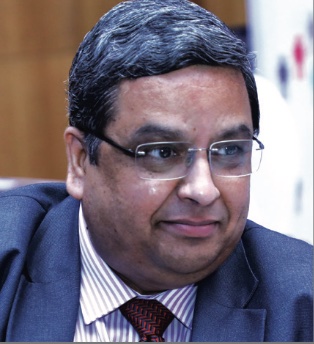 PVG Menon
PVG Menon
ACCS
ri PVG Menon is an experienced technology expert and Advisor to the Electronic Systems Design and Manufacturing (ESDM) industry. With over three and a half decades of experience, Sri Menon has developed and managed complex global technology programs, led industry initiatives and advocated for development of cutting edge indigenous technologies. He has lent his expertise and counsel to policy and regulatory efforts for the industry. He has served as President of the India Electronics & Semiconductor Association (IESA), and as CEO of the Electronics Sector Skills Council of India (ESSCI), besides holding senior leadership positions in industry.
Sri Menon has written and spoken extensively on this sector and advises both government and industry on policy and strategic aspects for this sector. He has been awarded multiple times by various organizations that he has worked for, and has also been conferred with the Silicon India - Mentor Graphics Lifetime Achievement Award for Outstanding Individual Contribution to the VLSI and Electronics industry in India. He is based in Bangalore- India.
Article(s):
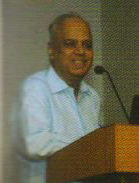 R. VITTAL RAO
R. VITTAL RAO
Department of Electronic systems Engg., (DESE) at the Indian Institute of Science, Bangalore.
Prof. R Vittal Rao, is currently a consultant at the Department of Electronic systems Engg., (DESE) at the Indian Institute of Science, Bangalore. He is retired professor from the Department of mathematics, IISC Bangalore and served as chairman of the department. His video lectures on Advanced Matrix Theory for NPTEL courses is well know and well received but audience from across the world.
Article(s):
Rabab Ahmed Rashwan
InterAcademy Partnership
Article(s):
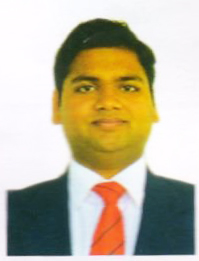 Radha Narayan Rao K
Radha Narayan Rao K
ARM as part of the ARM University world-wide Education program
Radha Narayan Rao K. has been with ARM as part of the ARM University world-wide Education program since his post graduation, actively supporting the marketing and operational functions. He had completed his Masters in Business Administration from Sri Sathya Institute of Higher Learning, Puttaparthi
Article(s):
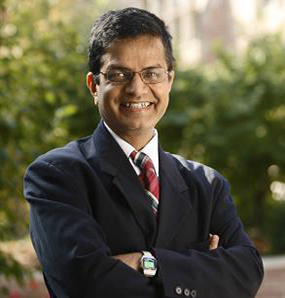 Raj Jain
Raj Jain
Life Fellow of IEEE, a Fellow of ACM, a Fellow of AAAS, a winner of 2015
Prof. Raj Jain is a Life Fellow of IEEE, a Fellow of ACM, a Fellow of AAAS, a winner of 2015 A.A. Michelson Award, ACM SIGCOMM Test of Time award 2006, CDAC-ACCS Foundation Award 2009, IISc Distinguished Alumnus Award 2014, WiMAX Forum Individual Contribution Award 2008, and ranks among the top 90 in Citeseer’s list of Most Cited Authors in Computer Science. Dr. Jain is currently the Barbara J. and Jerome R. Cox, Jr., Professor of Computer Science and Engineering at Washington University in St. Louis.
Previously, he was one of the Co-founders of Nayna Networks, Inc – a next generation telecommunications systems company in San Jose, CA. He was a Senior Consulting Engineer at Digital Equipment Corporation in Littleton, Mass and then a professor of Computer and Information Sciences at Ohio State University in Columbus, Ohio. He received his B.E. (Electrical) degree from APS University Rewa India, M.E. (Automation) from Indian Institute of Science, Bangalore, India and Ph.D. (Applied Math/Computer Science) from Harvard University, Cambridge, MA, USA.
Article(s):
Rajalekshmi Kishore
Department of Electronics and Communication Engineering, The National Institute of Engineering
Article(s):
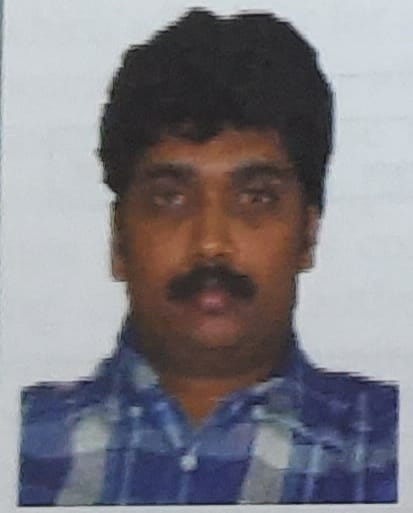 Rajavelsamy R.
Rajavelsamy R.
Architect (General Manager) in the Standards Team of Samsung R&D Institute India, Bengaluru
Rajavelsamy R is an Architect (General Manger) in the Standard Team of Samsung R & D Institute India, Bengaluru. He received Bachelor of Engineering Degree in Electronics and Communication Engineering and Master of Technology Degree in computer Science and Engineering. He Joined Samsung Electronics, at its India office in 2003 and has been with its standard Team, focusing on research and standardization of wireless mobile communications. He has 15+ years of rich experience in security system architecture, security protocols, wireless cellular communications systems protocols, where he has contributed in research and standardization of Samsung Telecommunication products. Since 2004, he has been actively involved in contributing and participating in 3GPP SA3 meetings representing Samsung. He has actively contributed since Rel-6, e.g., WCDMA, IWLAN, H (e) NB, LTE, MTC, ProSe, MCX, CAPIF, 5G standardization. He also served as Vice Chairman of 3GPP SA3 WG (July 2007 to Nov 2009). He is active as rapporteur for several 3GPP SA3 work items specifically, MTC, CAPIF, IAB, SCAS- UPF.
Article(s):
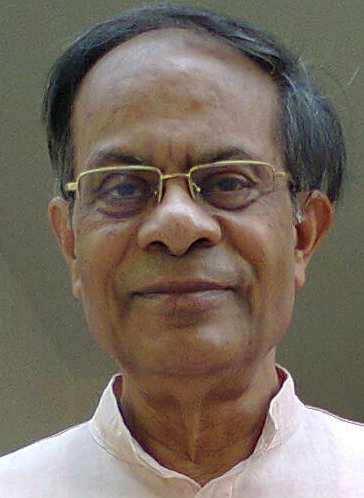 Rajendra K. Bera
Rajendra K. Bera
Chief Mentor, Acadinnet Education Services India Pvt.
Dr. Rajendra K. Bera is the Chief Mentor at Acadinnet and a former honorary professor at the International Institute of Information Technology, Bangalore where he taught two courses: quantum computing, and intellectual property rights. In November 2005 he retired as the head of the R&D group of IBM Software Labs, India. He was with IBM during 1995-2005. Earlier he was a research scientist with the National Aerospace Laboratories, Bangalore (1971- 1995); a visiting assistant professor of aerospace, mechanical, and nuclear engineering, University of Oklahoma, USA (1979-1980); and a visiting faculty of aerospace engineering at the Indian Institute of Technology, Kanpur (1988) where he taught fighter aircraft design.
Dr. Bera received his BTech, MTech, and PhD degrees in aeronautical engineering from the Indian Institute of Technology, Kanpur, India. He was a member of the New York Academy of Sciences, and is a Fellow of The Institution of Engineers (India). He is listed in several Marquis Who’s Who.
Article(s):
-
THE IMPORTANCE OF SYMMETRY IN NATURE
Cover Feature | Volume 6, Issue 02 | 25 June, 2022
-
The Mysterious World of Quantum Computing
Cover Feature | Volume 5, Issue 02 | 25 June, 2021
-
AI Powered Society
Trends | Volume 3, Issue 01 | 25 March, 2019
-
The Essence of Quantum Computing Part 3 of 3 Part Series
Feature | Volume 2, Issue 03 | 25 September, 2018
-
The Essence of Quantum Computing Part 2 of 3 Part Series
Feature | Volume 2, Issue 02 | 25 June, 2018
-
The Essence of Quantum Computing
Feature | Volume 2, Issue 01 | 25 March, 2018
Rajendra K. Bera
Chief Mentor, Acadinnet
Article(s):
Ram P. Rustagi
Department Of CSE, KSIT Bengaluru
Prof. Ram P. Rustagi is currently working as Professor, CSE dept, KSIT Bangalore, and honed up his academic skills with Ph.D from IIT Delhi, and M.Tech from IISc Bangalore. Prior to KSIT, at Cavisson Systems, he mentored new technology development using Machine Learning techniques in Security and Performance Monitoring. At PES University, he had taught Undergraduates, Post Graduates students, and successfully guided 3 Ph.D scholars. At PESU, he brought innovations in teaching computer network and security courses, and introduced practical experiential learning exercises.
His previous engagements cover senior positions in engineering in various startup technology companies in USA/India. The professional spectrum of 30+ years covers Academic Institutes, and Technology start-ups as well as large companies. His research interests are Computer Networks and Cyber Security, Application Performance optimisation, Analytics cum Data Mining, and Algorithms.
He has conducted several Hands-on workshops and seminars, delivered guest lectures, conducted tutorials at IEEE conferences as well as corporates, and is an invited speaker at various technology workshops. He has several publications in international Journals and IEEE conferences and is a regular peer reviewer at IEEE ANTS and IEEE ADCOM. He is an invited contributor and writes regularly for the technical journal Advanced Computing and Communications (http://acc.digital) published quarterly by ACCS, under the column Experiential Learning of Networking Technologies.
Article(s):
-
GAMIFIED APPROACH TO LEARN ALGORITHMS Exploring Basics of Algorithmic Approach
Cover Feature | Volume 5, Issue 03 | 25 September, 2021
-
GALA: A Gamified Approach To Learning Algorithms
Hands-On | Volume 5, Issue 01 | 25 March, 2021
-
Experiential Learning of Networking Technologies Understanding IP Routing
Feature | Volume 4, Issue 03 | 25 September, 2020
-
Experiential Learning of Networking Technologies: Understanding Network Layer & IP Addressing
Hands-On | Volume 4, Issue 02 | 25 June, 2020
-
Experiential Learning of Networking Technologies: Evolution of Socket Programming â Part II
Hands-On | Volume 4, Issue 01 | 25 March, 2020
-
Experiential Learning of Networking Technologies: Understanding TCP Flow Control
Feature | Volume 3, Issue 02 | 25 June, 2019
-
Understanding Transport Layer Basics - Experiential Learning Series
Feature | Volume 2, Issue 03 | 25 September, 2018
-
Experiential Learning of Networking Technologies: Understanding Web Security
Feature | Volume 2, Issue 02 | 25 June, 2018
-
Experiential Learning of Networking Technologies: Understanding Web Performance
Feature | Volume 2, Issue 01 | 25 March, 2018
-
Experiential Learning of Networking Technologies: Understanding Network Delays
Hands-On | Volume 1, Issue 03 | 25 December, 2017
-
Experiential Learning of Networking Technologies
Feature | Volume 1, Issue 02 | 25 September, 2017
Ram P. Rustagi
Article(s):
Ram P. Rustagi
CSE Dept, KSIT
Article(s):
REPORT
Article(s):
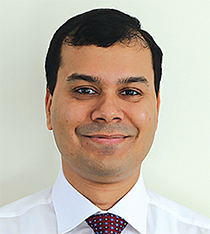 Rohit Ranjan Rai
Rohit Ranjan Rai
Associate - Communications and Policy, IIIT-Bangalore
Rohit Ranjan Rai is employed at
IIIT-Bangalore working as Associate
- Communications and Policy with
the Modular Open Source Identity
Platform (MOSIP).
Rohit has completed his Master’s in Public Policy at the Institute
of Public Policy (NLSIU), Bangalore. He has a Bachelor’s degree in
engineering specialising in information science.
Rohit is particularly interested in technology policy with special
focus on data governance, digital public goods, and digital identity.
He can be reached at rohit@mosip.io
Article(s):
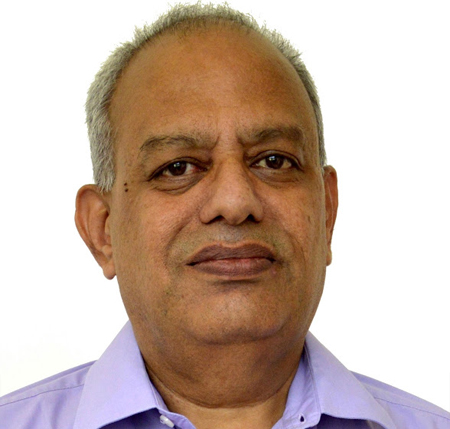 S. Rajagopalan
S. Rajagopalan
Professor & Faculty-in-charge Institutional & Finance.
Prof. S. Rajagopalan Professor & Faculty-in-charge Institutional & Finance. He received his B.Tech degree from IIT Delhi , PGDM from IIM Bangalore and Ph.D from IIT Kanpur.He was the Chief Executive Officer of the Karnataka State Council for Science and Technology from 1982 to 1993 and was involved managing innovations that addressed the problems of Karnataka..
In 1993 he along with a few colleagues founded Technology Informatics Design Endeavour ( TIDE) a not for profit development society which focused on developing and disseminating technologies that are economically attractive, environmentally sustainable and socially acceptable in rural areas of Karnataka. He was its Chairman till 2007. For his work in TIDE ,he was awarded the Ashoka Fellow ( 1994), Fellow of the Salzburg Seminar ( 1999) , one of the four finalists of Social Entrepreneur of India award ( 2006) and one of the 50 pioneers of India chosen by India Today Magazine ( 2008). TIDE was awarded the International Green Oscar , the Ashden Award in 2008.
Dr Rajagopalan has been working in the area of Geographical Information Systems since 1989 and founded a Company Spatial Data Private Limited in 1999. This Company was pioneer in developing user-friendly digital maps of Indian Cities under the Brand Name Mapcue. Dr. Rajagopalan areas of interest includes innovation dissemination, economics of innovations, Geographical Information systems , and Economics of Information Technologies. He also heads the IIITB Innovation Centre, which aims at incubating and promoting innovations in the area of Information and Communication Technologies.
Article(s):
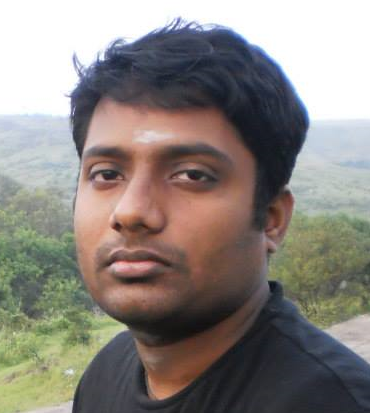 S. B. Balaji
S. B. Balaji
Ph.D. from Department of Electrical Communication Engineering, Indian Institute of Science, Bangalore
Dr. S. B. Balaji received his B.E in Electronics and Communication Engineering from Madras Institute of Technology, Chennai, in 2008 and M.Tech from the Department of Electrical Engineering, Indian Institute of Technology, Kanpur,in 2010 and Ph.D. from Department of Electrical Communication Engineering, Indian Institute of Science, Bangalore, in 2018. His research interests include coding theory and information theory.
Article(s):
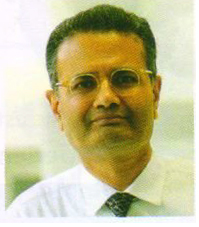 Sadanand Gulwadi
Sadanand Gulwadi
Global Manger of the ARM University Program based in Cambridge United Kingdom
Sadanand Gulwadi is the Global Manger of the ARM University Program based in Cambridge United Kingdom. After graduating with a doctoral degree in 1992, he started his career as an academic at Norfolk State University in Norfolk, Virginia. Five years later, he quit academia to join a start-up called Siliconians in Silicon Valley, California. A year and a half later, he joined Synopsys in Silicon Valley as a member of their verification business unit and was with them until 2011, when he joined ARM as the University program Manager for south Asia in Bangalore. In 2015, he was posted at ARM in San Jose, California, as the university program Manager for the Americas before he moved to Cambridge as the Global Manager a year later.
Article(s):
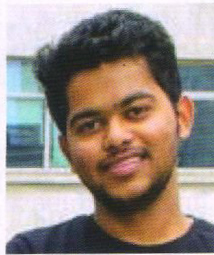 Sai Vikas Desai
Sai Vikas Desai
Computer Science at Indian Institute of Technology
Sai Vikas Desai received the BTech degree in Electronics and Communication Engineering from Jawaharlal Nehru Technological University in 2017. He is working toward the Masters degree in Computer Science at Indian Institute of Technology Hyderabad, under the supervision of Dr. Vineeth N Balasubramanian. His research interests include deep learning, compute vision and plant phenotyping. Specifically, he is interested in developing active learning tech niques for training efficient deep neural networks with limited labeled data for agricultura and plant phenotyping applications.
Article(s):
Sanjay Sahay
Article(s):
Sanjeev Gurugopinath
Department of Electronics and Communication Engineering, PES University
Article(s):
Saragur M. Srinidhi
Article(s):
Saraguru M. Srinidhi
ACCS
Article(s):
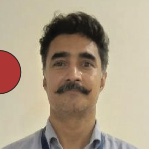 Satish Jamadagni
Satish Jamadagni
Reliance Jio
s currently a Senior Vice President and head of Global Standards at Reliance Jio. He has 25 years of industry experience in the telecom domain. He is also the ex-Vice Chair of TSDSI – the Indian Standards Development Organization (SDO). He is active in 3GPP, GSMA (member of the Strategy Group) and in O-RAN alliance. Earlier he was a Co-Chair of the Asia Regional Operators Group; Small Cell Forum (SCF) and was on the board of the International Multimedia Teleconferencing Consortium (IMTC). He has around 200 granted patents in the wireless and network domain and around 30+ published papers.
Article(s):
Shaher Momani
InterAcademy Partnership
Article(s):
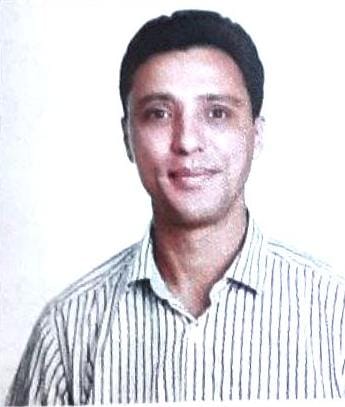 Sharath Srivatsa
Sharath Srivatsa
International Institute of Information Technology Bangalore
Sharath Srivatsa is an MS by Research student at Web Science Lab, IIIT, Bangalore. He has Bachelor’s degree in Information Science and Engineering. He has around 13 years of work experience in software development using Web Technologies. He has worked on Sentiment Analysis using Natural Language Processing (NLP), Web Crawlers and Big Data. His areas of interest include Natural Language Understanding (NLU), Natural Language Processing (NLP) and Web Science.
Article(s):
Shivika Narang
Department of Computer Science and Automation, Indian Institute of Science.
Article(s):
Shweta Jain
Department of Computer Science and Automation, Indian Institute of Science.
Article(s):
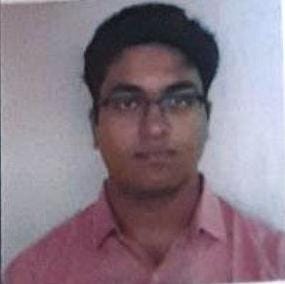 Shyam Kumar V N
Shyam Kumar V N
International Institute of Information Technology Bangalore
Shyam is an MS by Research student at Web Science Lab, IIIT Bangalore. He holds a PG Diploma in Data Analytics from IIIT Bangalore & UpGrad and a B.E in Computer Science and Engineering from VTU. He has around four years of industry experience. He works in the areas of Data Warehousing, Big Data & Analytics, Machine Learning. His research interests are Natural Language Understanding, Natural Language Processing, Knowledge representation and Data management.
Article(s):
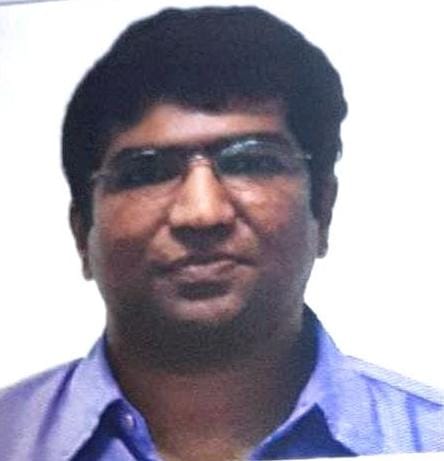 Srinath Srinivasa
Srinath Srinivasa
International Institute of Information Technology Bangalore
Prof. Srinath Srinivasa heads the Web Science lab and is the Dean (R&D) at IIIT Bangalore, India. Srinath holds a Ph.D. (magna cum laude) from the Berlin Brandenburg Graduate School for Distributed Information Systems (GkVI) Germany. He holds an M.S. (by Research) degree from IIT-Madras and a B.E. degree in Computer Science and Engineering from The National Institute of Engineering (NIE) Mysore. He works in the area of Web Science — that models of the impact of the web on humanity. Technology for educational outreach and social empowerment has been a primary motivation driving his research. He has participated in several initiatives for technology-enhanced education including the VTU Edusat program, The National Programme for Technology Enhanced Learning (NPTEL) and an educational outreach program in collaboration with Upgrade.
He is a member of various technical and organizational committees for international conferences like International Conference on Weblogs and Social Media (ICWSM), ACM Hypertext, COMAD/CoDS, ODBASE, etc. He is also a life member of the Computer Society of India (CSI). As part of academic community outreach, Srinath has served on the Board of Studies of Goa University and as a member of the Academic Council of the National Institute of Engineering, Mysore. He has served as a technical reviewer for various journals like the VLDB journal, IEEE Transactions on Knowledge and Data Engineering, and IEEE Transactions on Cloud Computing. He is also the recipient of various national and international grants for his research activities.
Article(s):
Staff Writer
Article(s):
-
When India Connected to the Global Cyber Revolution
Cover Feature | Volume 4, Issue 03 | 25 September, 2020
-
Visionary Who Put India in Space
Feature | Volume 3, Issue 03 | 25 September, 2019
-
ACCS ARM Design Challenge 2017
Report | Volume 2, Issue 02 | 25 June, 2018
-
Would you like to become an ACCS Member?
Report | Volume 2, Issue 01 | 25 March, 2018
-
Would you like to become an ACCS Member?
Report | Volume 1, Issue 01 | 25 June, 2017
Stefan Eriksson
InterAcademy Partnership
Article(s):
Stefano Caiola
Article(s):
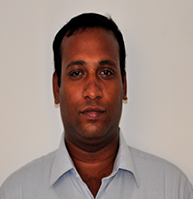 Sudarsun Santhiappan
Sudarsun Santhiappan
PhD scholar at IIT Madras since 2013
Mr. S. Sudarsun is an Applied Research Scientist in the field of Text Mining and Machine Learning and a PhD scholar at IIT Madras since 2013. He worked in the industry for 12 years before joining the doctoral program, practicing end-to-end Product Development using Statistical Natural Language Processing, Data Mining, Machine Learning, Distributed Computing and Large Scale Search Engineering & Data Analytics. His PhD research is on developing a unified platform to solving class imbalance learning irrespective of data characteristics.
Article(s):
Sujeet Patole
Article(s):
Susan Veldsman
InterAcademy Partnership
Article(s):
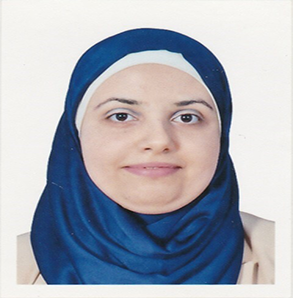 Tara Salman
Tara Salman
PhD student in computer engineering at Washington University in St.
is a PhD student in computer engineering at Washington University in St. Louis.She finished her BsC degree in computer engineering and Master degree in computing from Qatar University in 2012 and 2015 respectively. Her current main research interest spans network systems, security, distributed systems, cloud computing,Internet of Things and machine learning applications. Prior to that, she worked in physical layer security which spans network systems, signal processing and security. She has several publications in IEEE conferences and IET journal.
Article(s):
Tracey Elliott
InterAcademy Partnership
Article(s):
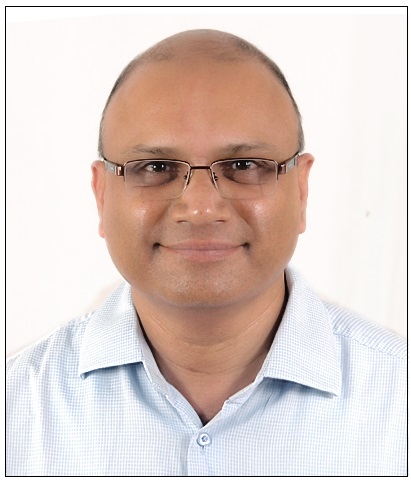 V. Sridhar
V. Sridhar
Professor, International Institute of Information Technology Bangalore (IIIT-B)
Dr. V. Sridhar is Professor at the Centre for IT and Public Policy at the International Institute of Information Technology Bangalore, India. He is the author of two books published by the Oxford University Press: The Telecom Revolution in India: Technology, Regulation and Policy (2012), and The Dynamics of Spectrum Management: Legacy, Technology, and Economics (2014). His third book titled Emerging ICT Polices and Regulations: Roadmap to Digital Economies is in process and expected to be completed by the end of 2018 with Springer Nature Publications. Dr. Sridhar has taught at many Institutions in the USA, Finland, New Zealand and India.
He has been a member of Government of India committees on Telecom and IT and has published more than 300 articles in newspapers and magazines on telecom regulation and policy issues. Dr. Sridhar has a Ph.D. from the University of Iowa, U.S.A. His work can be accessed at: http://www.vsridhar.info
Article(s):
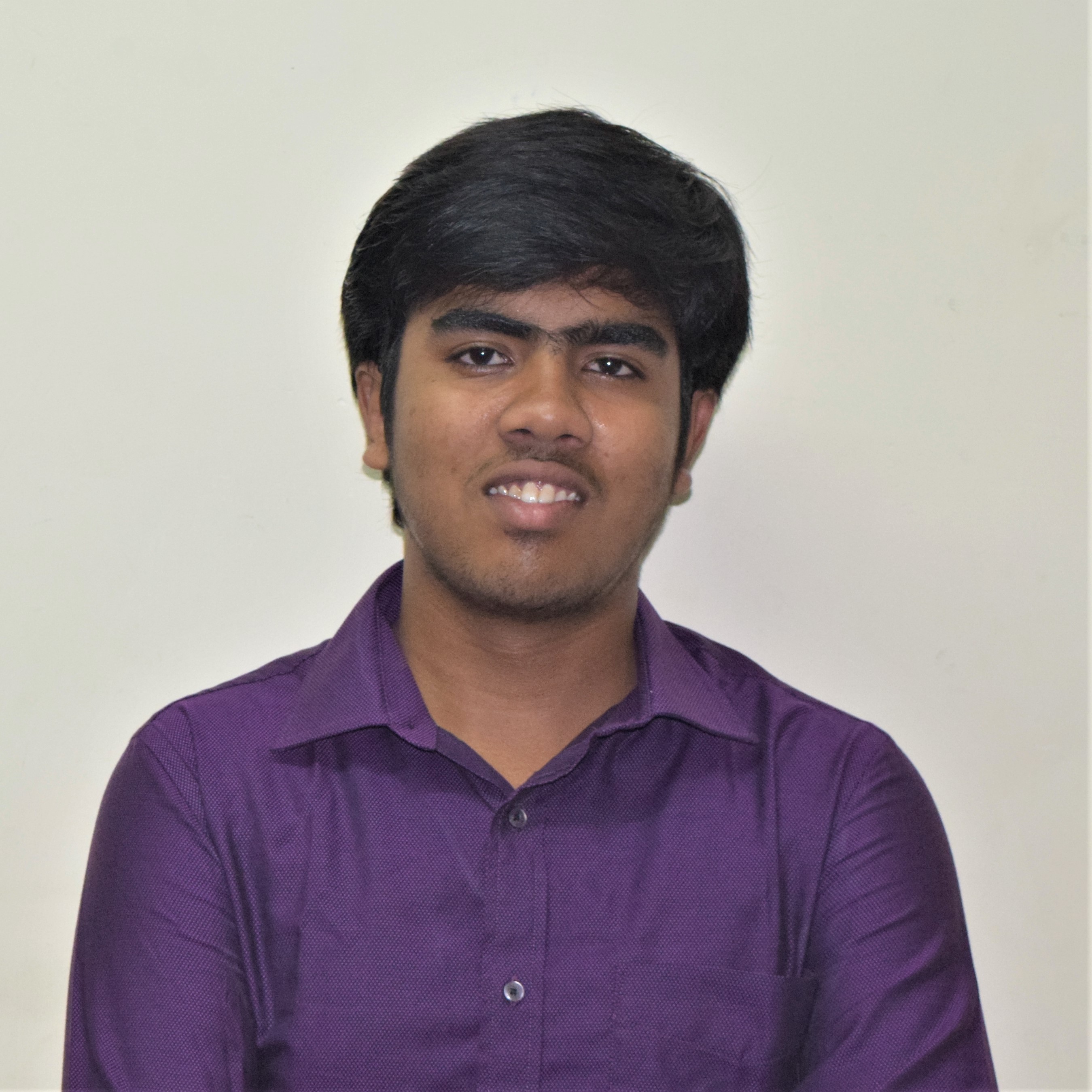 Vedant Somani
Vedant Somani
Dept. of CSE, Indian Institute of Technology Madras, Chennai, INDIA
Vedant Somani is a final year dual-degree (B.Tech./M.Tech.) student in the Department of Computer Science and Engineering, IIT Madras, expected to graduate in 2019. Currently, he is working on a tested project related to 5G, funded by Government of India’s Department of Telecommunication. He is also interested in Software Engineering and Graph Matchings. He also enjoys participating in competitive coding contests.
Article(s):
Venu Balaji Vinnakota
Indian Institute of Technology Kharagpur
Article(s):
Victorien Dougnon
InterAcademy Partnership
Article(s):
Vijay Kumar
ACCS-CDAC
Article(s):
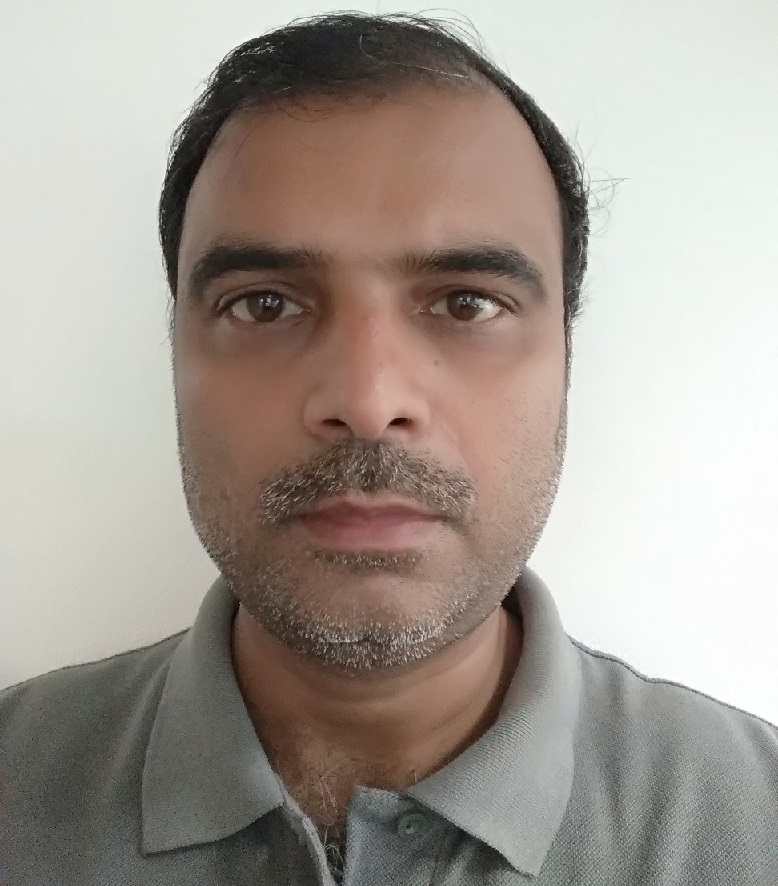 Vikram Menon
Vikram Menon
Confident Bellatrix
ikram Menon is currently a software developer in Parallel Wireless, Bangalore. His work domain is primarily IP security. He has 18 years of experience in telecom software development in MNCs like Ericsson, Stoke Networks, Motorola, etc. He received his B.E. in electronics engineering from the Motilal Nehru National Institute of Technology, Allahabad, India and M.S. by Research (in quantum computing) from the Indian Institute of International Technology, Bangalore, India. He is interested in and pursues quantum computing and quantum mechanics as a hobby.
Article(s):
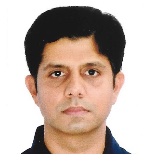 Vinay Shrivastava
Vinay Shrivastava
Reliance Jio
is currently a Senior Vice President and head of Global Standards at Reliance Jio. He has 25 years of industry experience in the telecom domain. He is also the ex-Vice Chair of TSDSI – the Indian Standards Development Organization (SDO). He is active in 3GPP, GSMA (member of the Strategy Group) and in O-RAN alliance. Earlier he was a Co-Chair of the Asia Regional Operators Group; Small Cell Forum (SCF) and was on the board of the International Multimedia Teleconferencing Consortium (IMTC). He has around 200 granted patents in the wireless and network domain and around 30+ published papers.
Article(s):
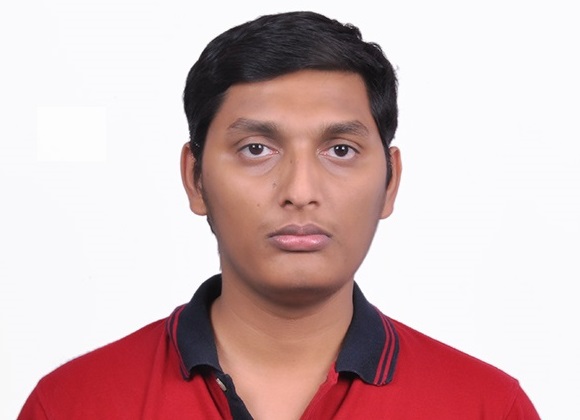 Vinayak Ramkumar
Vinayak Ramkumar
Ph.D. student at the Department of Electrical Communication Engineering, IISc
Vinayak Ramkumar received his B. Tech. in Electronics and Communication Engineering from National Institute of technology, Calicut, in 2015 and M. Sc. (Engg) from the Department of Electrical Communication Engineering, Indian Institute of Science (IISc), Bangalore, in 2017. He is currently a Ph.D. student at the Department of Electrical Communication Engineering, IISc. His research interests include coding theory and information theory.
Article(s):
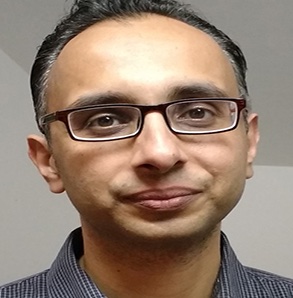 Viraj Kumar
Viraj Kumar
Guest Lecturer, Department of CSA, IISc Bengaluru
Prof. Viraj Kumar is a Visiting Professor at the Divecha Centre for Climate Change, IISc Bangalore and the Vice-Chair of ACM Indiaâs Special Interest Group in Computer Science Education (iSIGCSE). He was a consultant to the Committee to draft the National Education Policy (2017-18), and contributed to two education-related task groups of the Karnataka Knowledge Commission (2014-16). He holds a PhD in Computer Science from the University of Illinois at Urbana-Champaign.
Article(s):
-
Holistic and multi-disciplinary engineering education: why and how
Feature | Volume 5, Issue 04 | 25 December, 2021
-
Experiential Learning of Networking Technologies: Evolution of Socket Programming â Part II
Hands-On | Volume 4, Issue 01 | 25 March, 2020
-
Experiential Learning of Networking Technologies: Understanding TCP Flow Control
Feature | Volume 3, Issue 02 | 25 June, 2019
-
Experiential Learning of Networking Technologies: Understanding Network Delays
Hands-On | Volume 1, Issue 03 | 25 December, 2017
-
Experiential Learning of Networking Technologies
Feature | Volume 1, Issue 02 | 25 September, 2017
Viraj Kumar
Divecha Centre for Climate Change , IISc
Article(s):
-
GAMIFIED APPROACH TO LEARN ALGORITHMS Exploring Basics of Algorithmic Approach
Cover Feature | Volume 5, Issue 03 | 25 September, 2021
-
GALA: A Gamified Approach To Learning Algorithms
Hands-On | Volume 5, Issue 01 | 25 March, 2021
-
Understanding Transport Layer Basics - Experiential Learning Series
Feature | Volume 2, Issue 03 | 25 September, 2018
-
Experiential Learning of Networking Technologies: Understanding Web Security
Feature | Volume 2, Issue 02 | 25 June, 2018
-
Experiential Learning of Networking Technologies: Understanding Web Performance
Feature | Volume 2, Issue 01 | 25 March, 2018
-
Experiential Learning of Networking Technologies
Feature | Volume 1, Issue 01 | 25 June, 2017
Viraj Kumar
Visiting Professor at the Divecha Centre for Climate Change, IISc Bangalore and the Vice-Chair of ACM Indiaâs Special Interest Group in Computer Science Education (iSIGCSE)
Article(s):
Y. Narahari
Department of Computer Science and Automation, Indian Institute of Science.
Article(s):
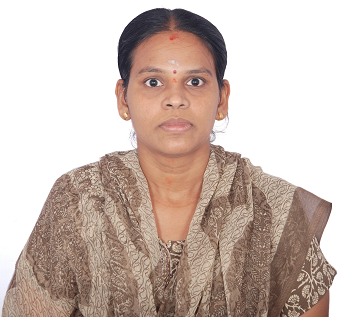 Yogalakshmi Jayabal
Yogalakshmi Jayabal
International Institute of Information Technology, Bangalore.
Yogalakshmi Jayabal International Institute of Information Technology, Bangalore. Her research interests involve different aspects in data analytics involving various data mining algorithms. Yogalakshmi Jayabal focus more towards clustering algorithms and mostly towards clustering mixed data types and cluster analysis of correlated variables. Data is collected in a variety of formats and types. For example, in the field of education: data about students, enrollment, performance, and assessments are collected.
Properties like performance metrics (marks obtained, result), demographic details (location, economic status) are measured and stored. It is worth noting that data in the real world are rarely homogenous (i.e., fully quantitative, fully categorical, etc.) Hence, often this real world information available to us as data sources includes both quantitative and qualitative observations of the subjects. These data of interest could be distributed and heterogeneous in nature. Hence, analyzing this heterogeneous and mixed data available to us is important and challenging. Sometimes, within a single data set, some attributes may be correlated with other attributes. These correlations between different attributes could also be high. Hence, modeling the correlation between attributes in analysis is a challenging problem to explore. Currently I work on these topics.
Article(s):



 Amitabh Saraf
Amitabh Saraf Anmol Sahoo
Anmol Sahoo Anton V. Riabov
Anton V. Riabov Aparna Lalingkar
Aparna Lalingkar Arjun Menon
Arjun Menon ARULALAN RAJAN
ARULALAN RAJAN Asha Garg
Asha Garg ASHOK RAO
ASHOK RAO Biplav Srivastava
Biplav Srivastava Birenjith Sasidharan
Birenjith Sasidharan C. E. Veni Madhavan
C. E. Veni Madhavan Dr. Ram P. Rustagi
Dr. Ram P. Rustagi Dr. Srinivasan Ramani
Dr. Srinivasan Ramani Dr. Vineeth N Balasubramanian
Dr. Vineeth N Balasubramanian Dr. Wei Guo
Dr. Wei Guo G. Usha
G. Usha G. S. Madhusudhana
G. S. Madhusudhana H. R. Uma
H. R. Uma H. S. JAMADAGNI
H. S. JAMADAGNI H. V. Kumar Swamy
H. V. Kumar Swamy Jaya Sreevalsan Nair
Jaya Sreevalsan Nair Jayant Ramaswamy Haritsa
Jayant Ramaswamy Haritsa Joseph YIU
Joseph YIU Krishna M. Sivalingam
Krishna M. Sivalingam M. Nikhil Krishnan
M. Nikhil Krishnan Mahesh Nayaka Mysoreannaiah
Mahesh Nayaka Mysoreannaiah Myna Vajha
Myna Vajha Neel Gala
Neel Gala P. V. Ananda Mohan
P. V. Ananda Mohan Paul George
Paul George Phanidra Palagummi
Phanidra Palagummi Prasad Ram
Prasad Ram Prof P. Vijay Kumar
Prof P. Vijay Kumar Prof. V. Kamakoti
Prof. V. Kamakoti Prof. Vaidyeswaran Rajaraman
Prof. Vaidyeswaran Rajaraman Prof.Sanjeev Gurugopinath
Prof.Sanjeev Gurugopinath PVG Menon
PVG Menon R. VITTAL RAO
R. VITTAL RAO Radha Narayan Rao K
Radha Narayan Rao K Raj Jain
Raj Jain Rajavelsamy R.
Rajavelsamy R. Rajendra K. Bera
Rajendra K. Bera Rohit Ranjan Rai
Rohit Ranjan Rai S. Rajagopalan
S. Rajagopalan S. B. Balaji
S. B. Balaji Sadanand Gulwadi
Sadanand Gulwadi Sai Vikas Desai
Sai Vikas Desai Satish Jamadagni
Satish Jamadagni Sharath Srivatsa
Sharath Srivatsa Shyam Kumar V N
Shyam Kumar V N Srinath Srinivasa
Srinath Srinivasa Sudarsun Santhiappan
Sudarsun Santhiappan Tara Salman
Tara Salman V. Sridhar
V. Sridhar Vedant Somani
Vedant Somani Vikram Menon
Vikram Menon Vinay Shrivastava
Vinay Shrivastava Vinayak Ramkumar
Vinayak Ramkumar Viraj Kumar
Viraj Kumar Yogalakshmi Jayabal
Yogalakshmi Jayabal